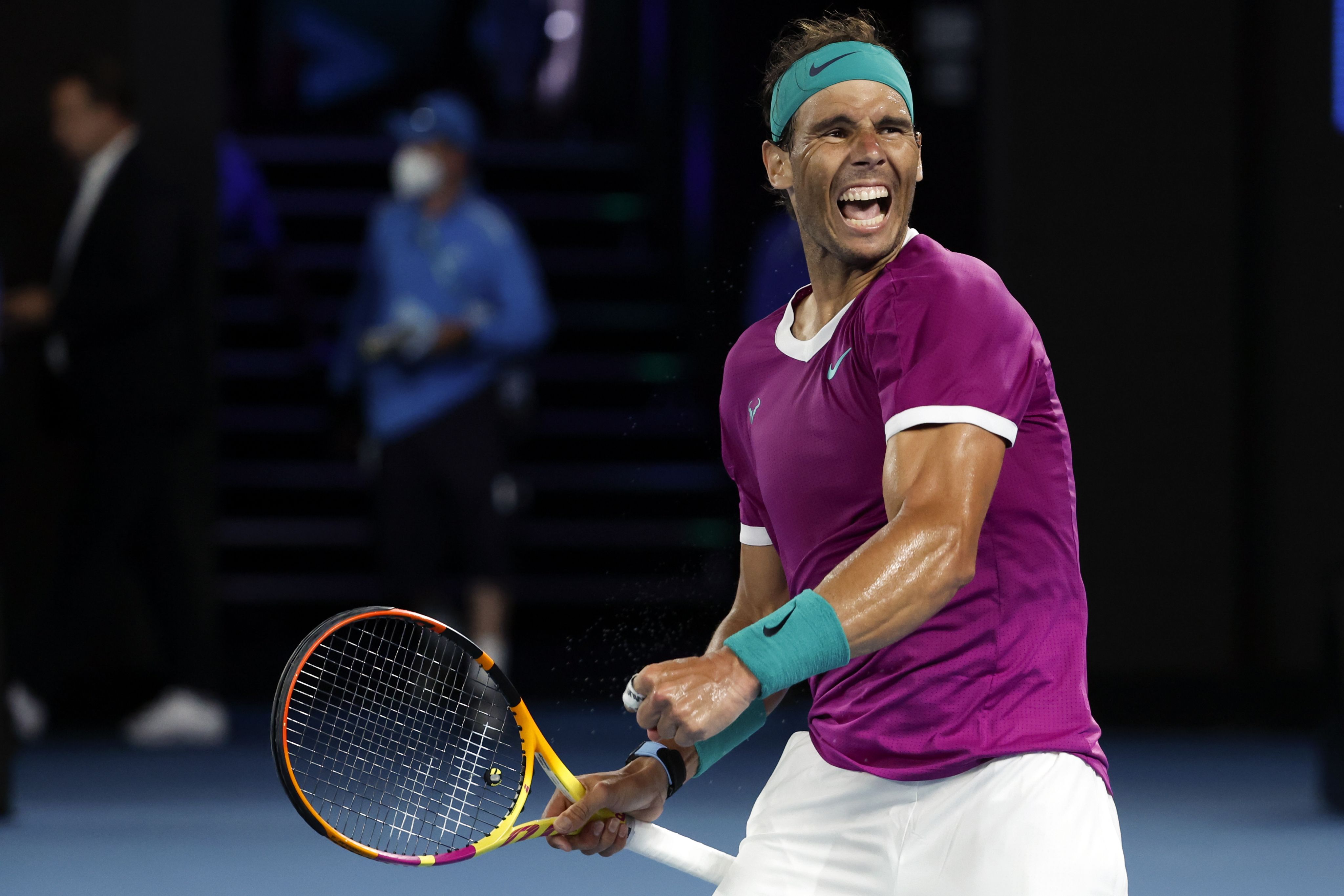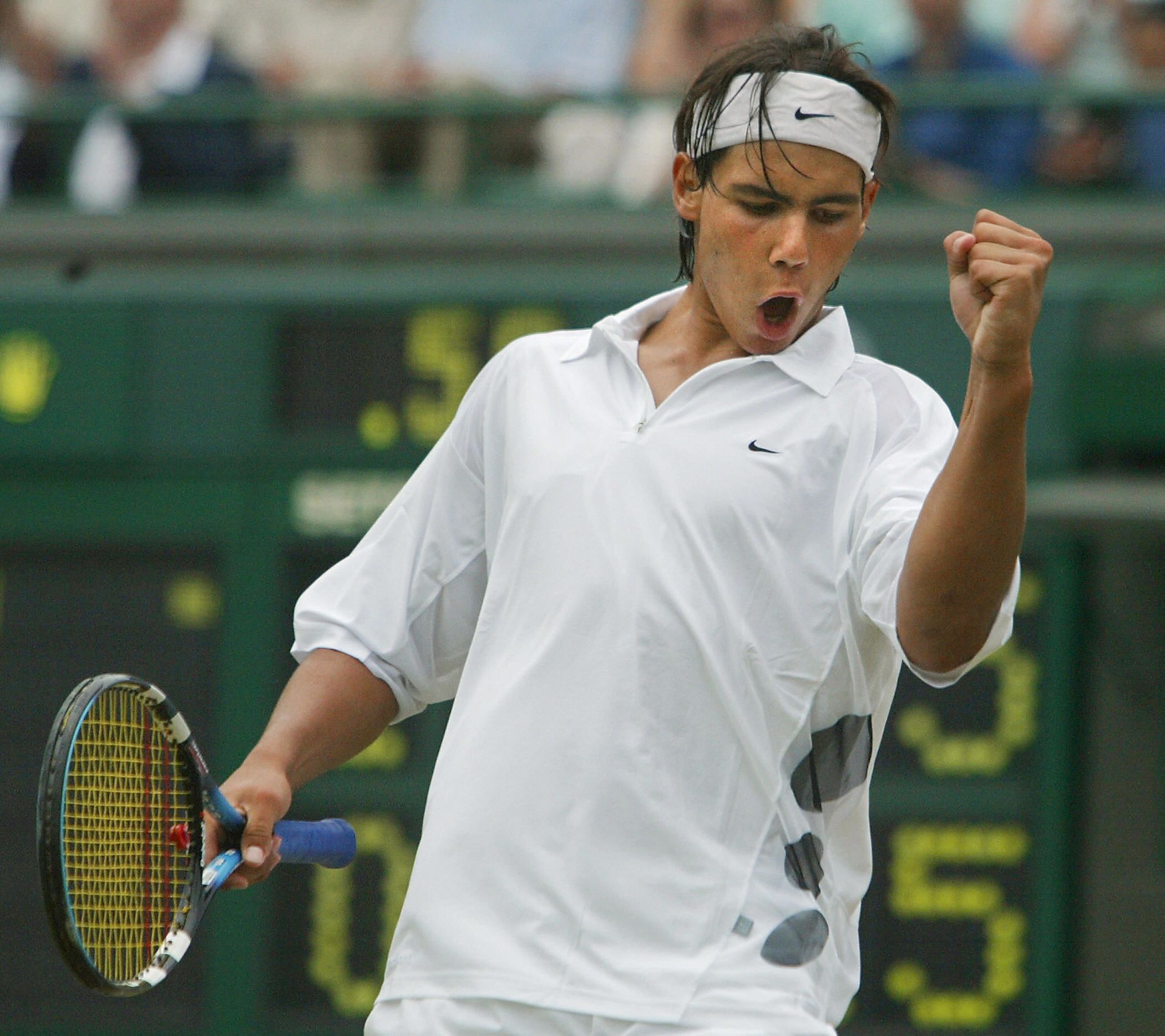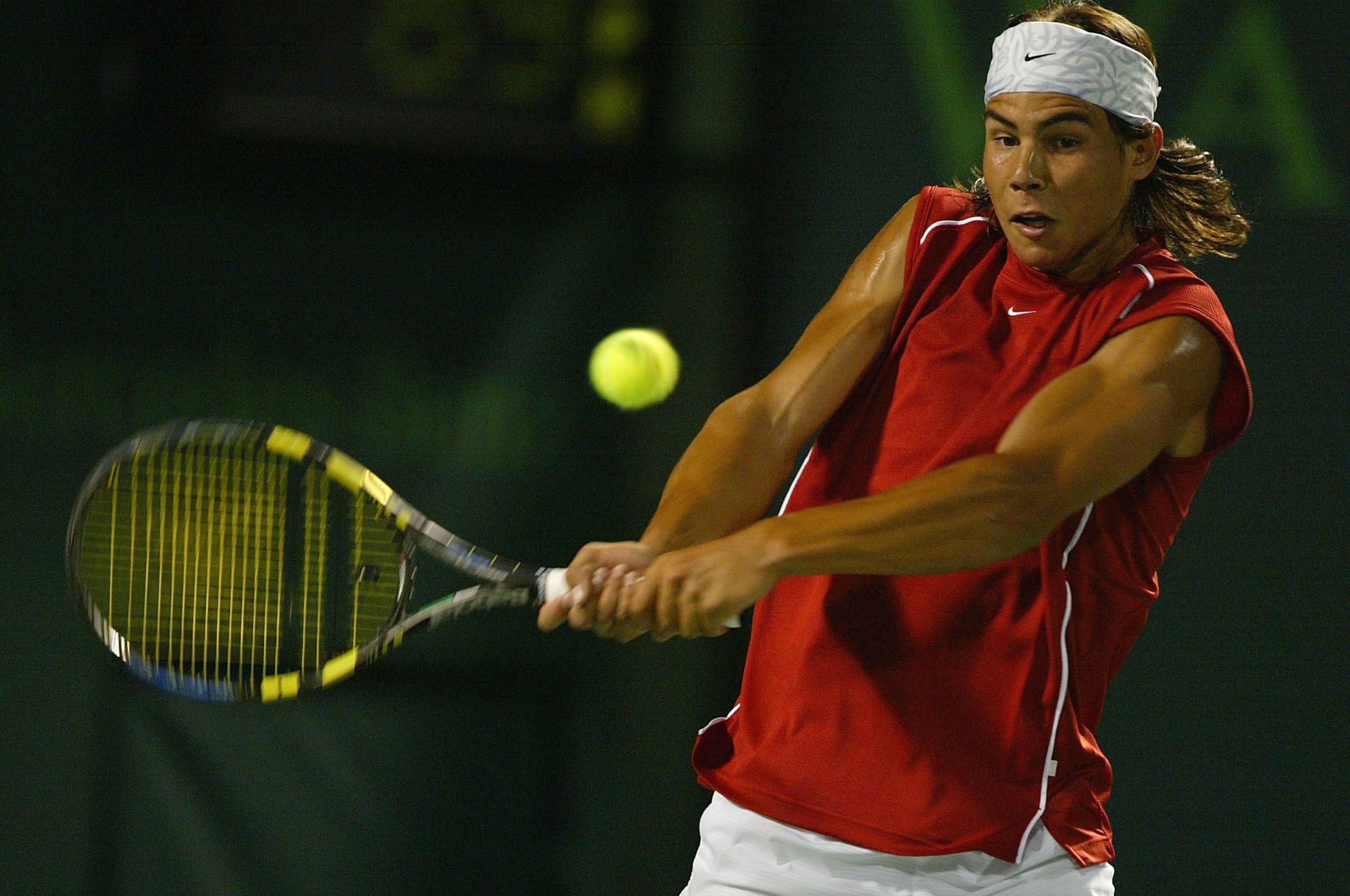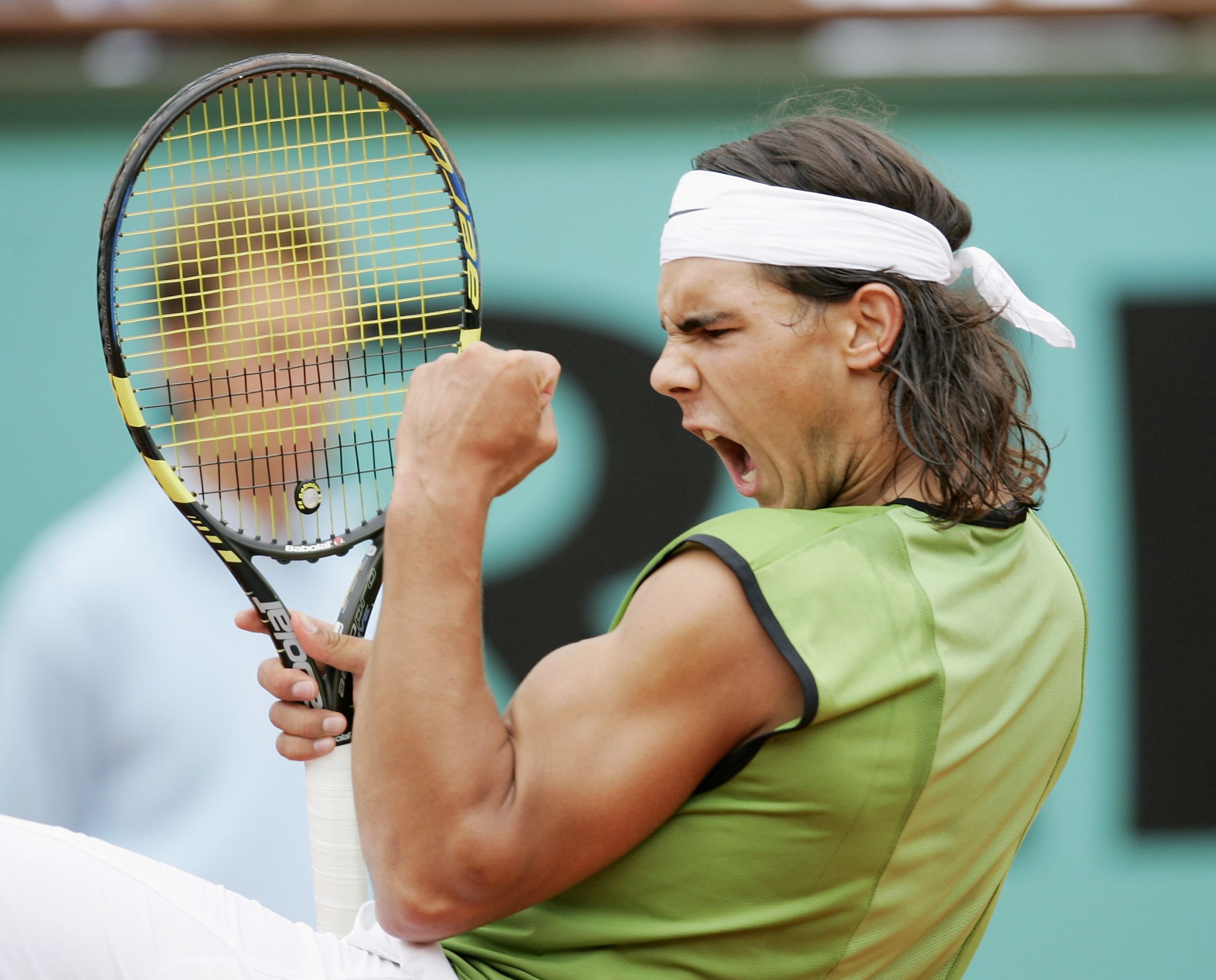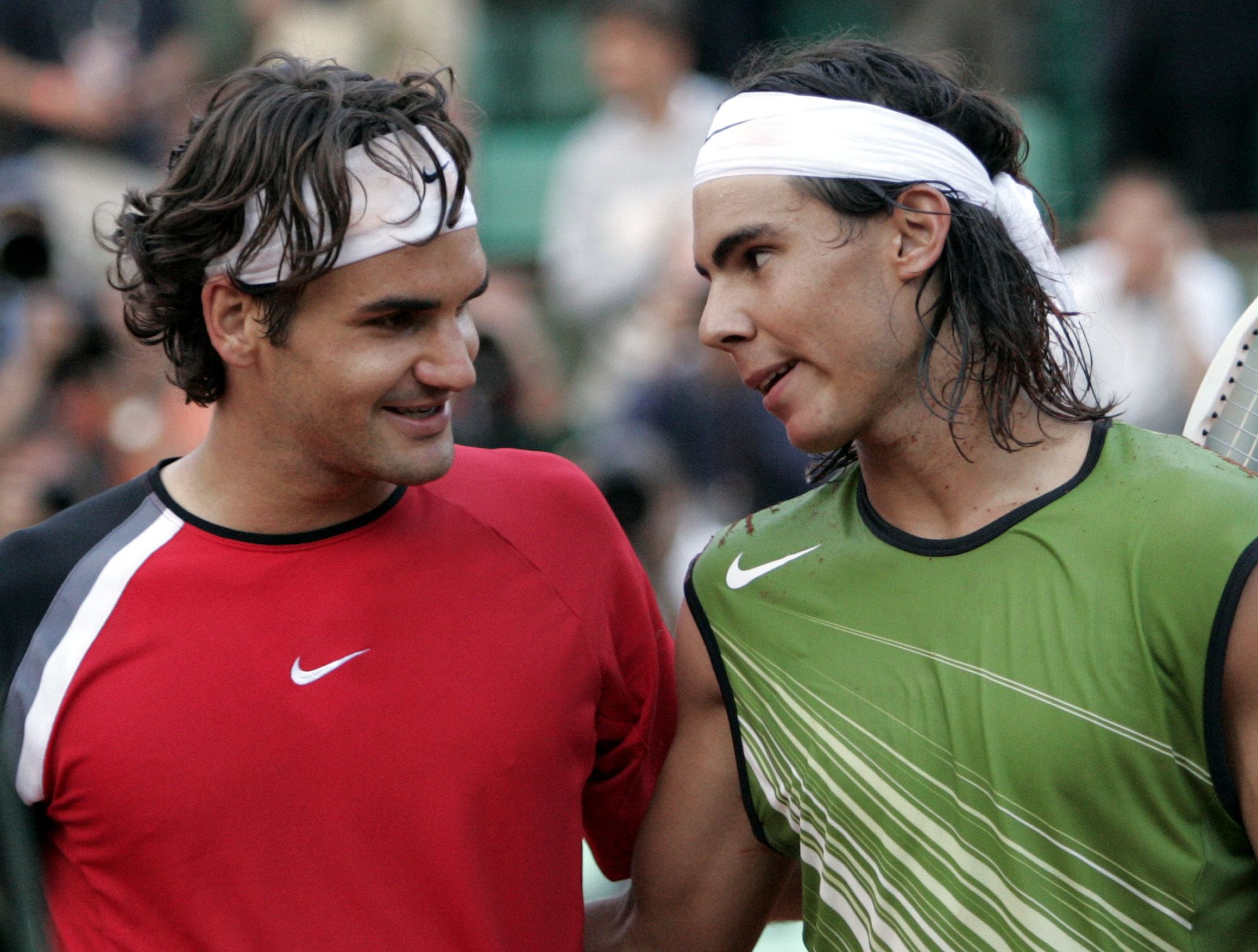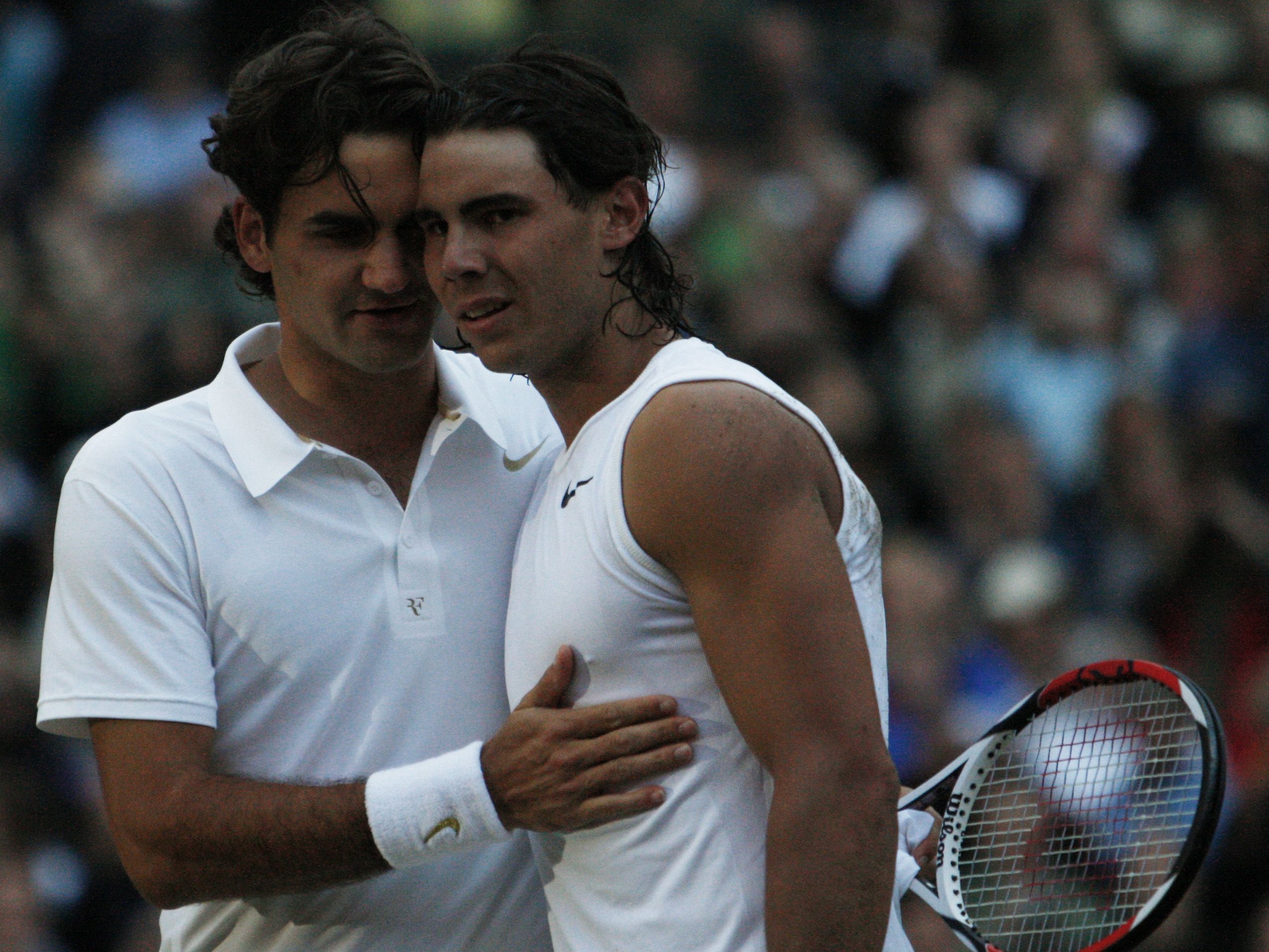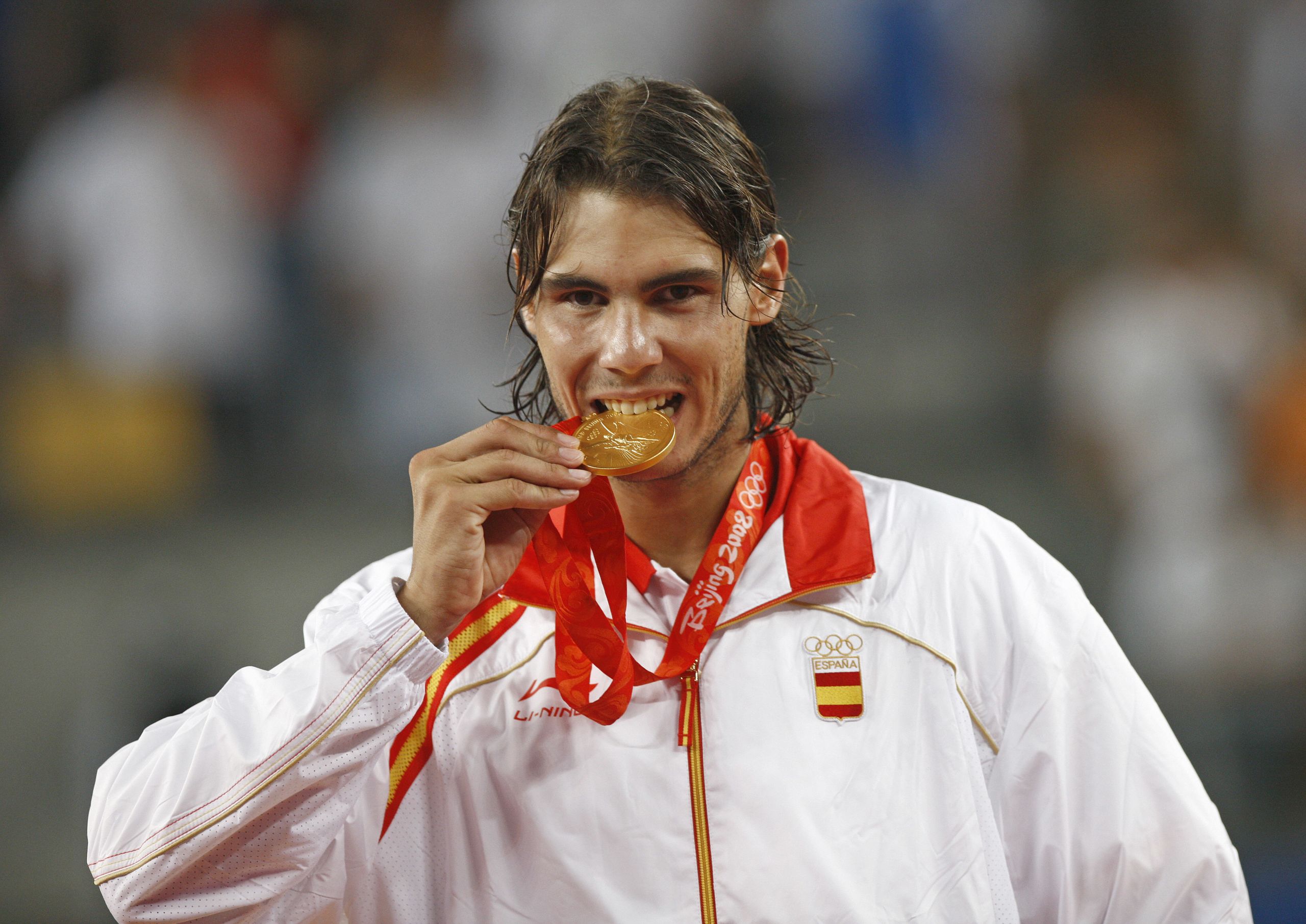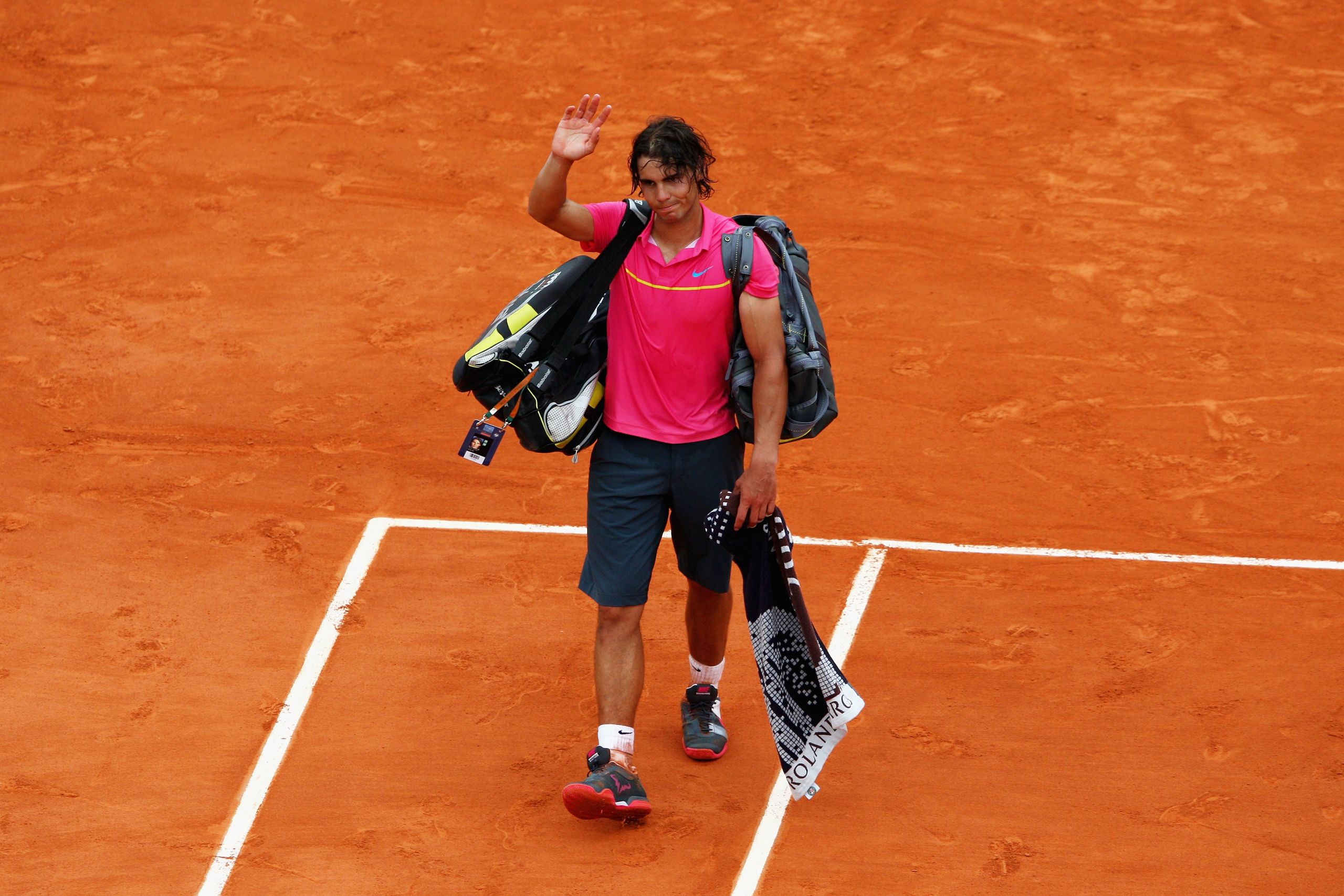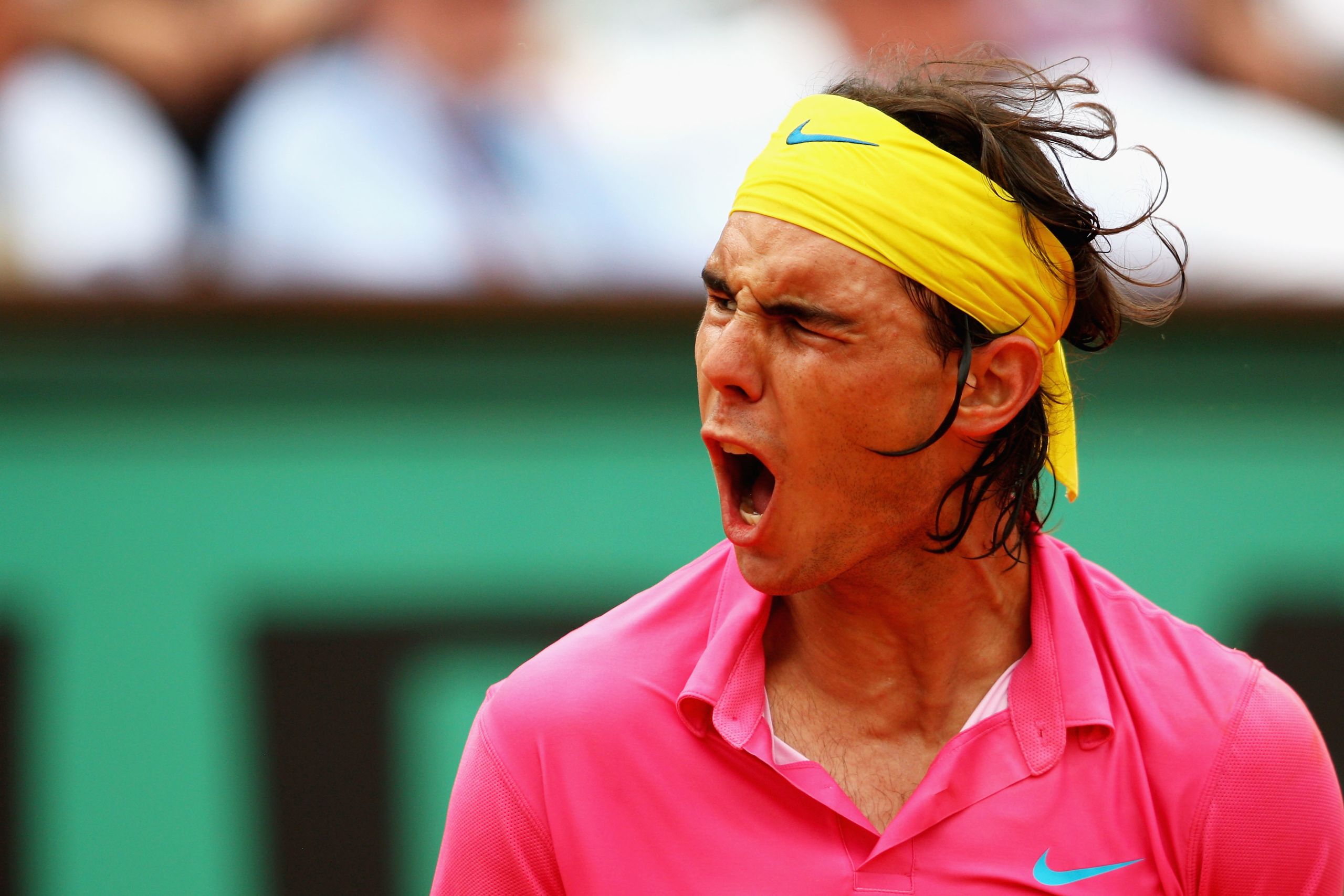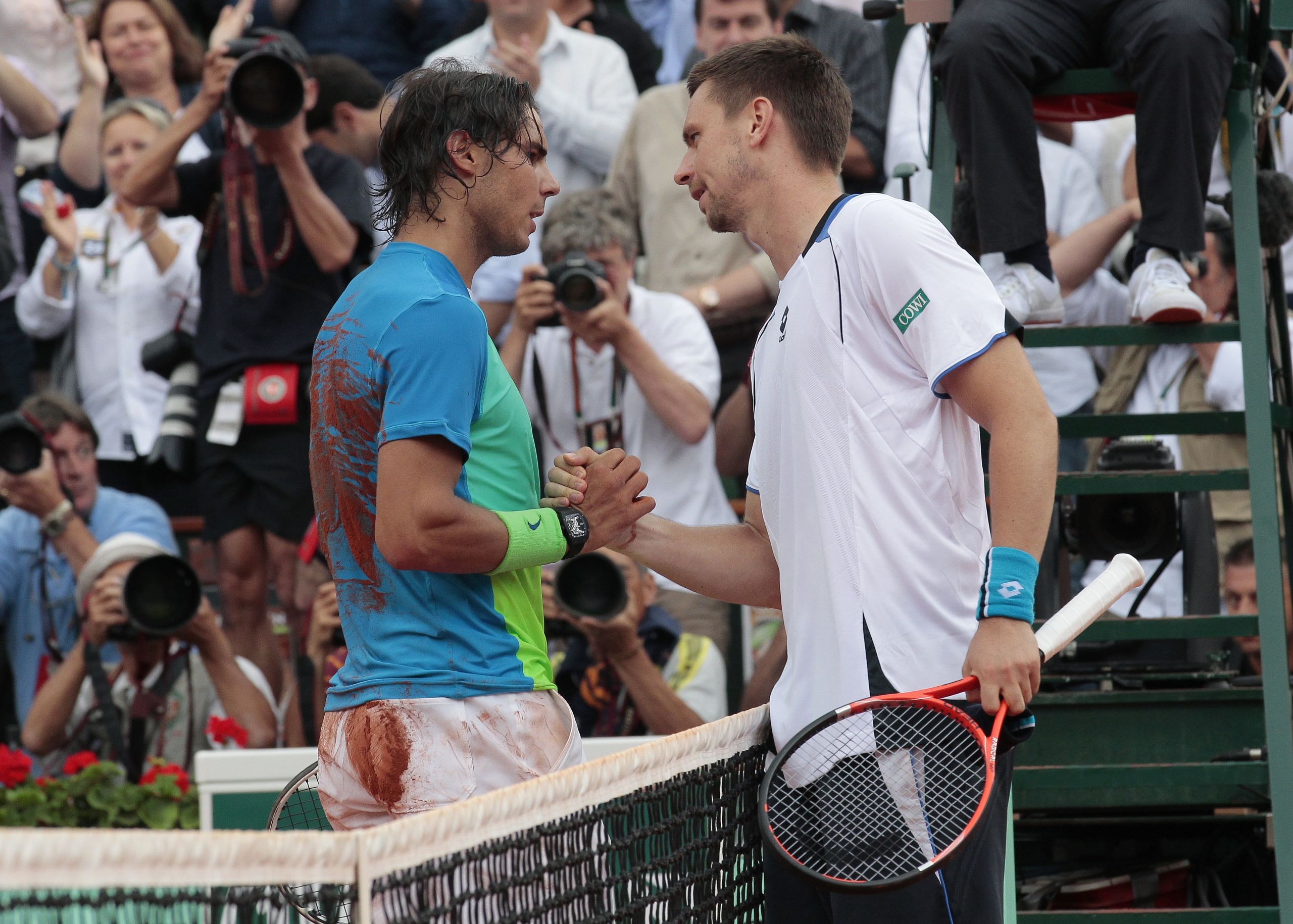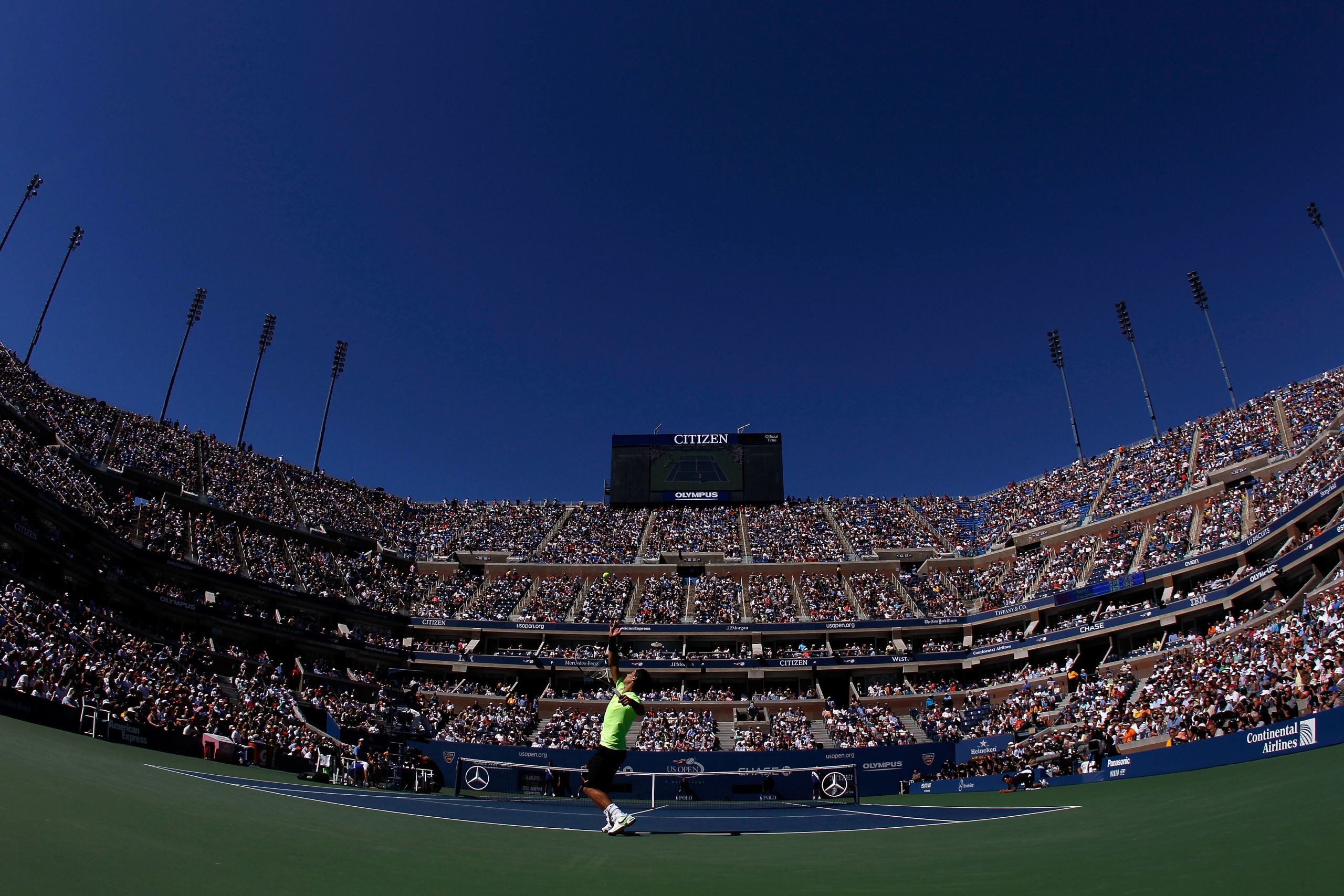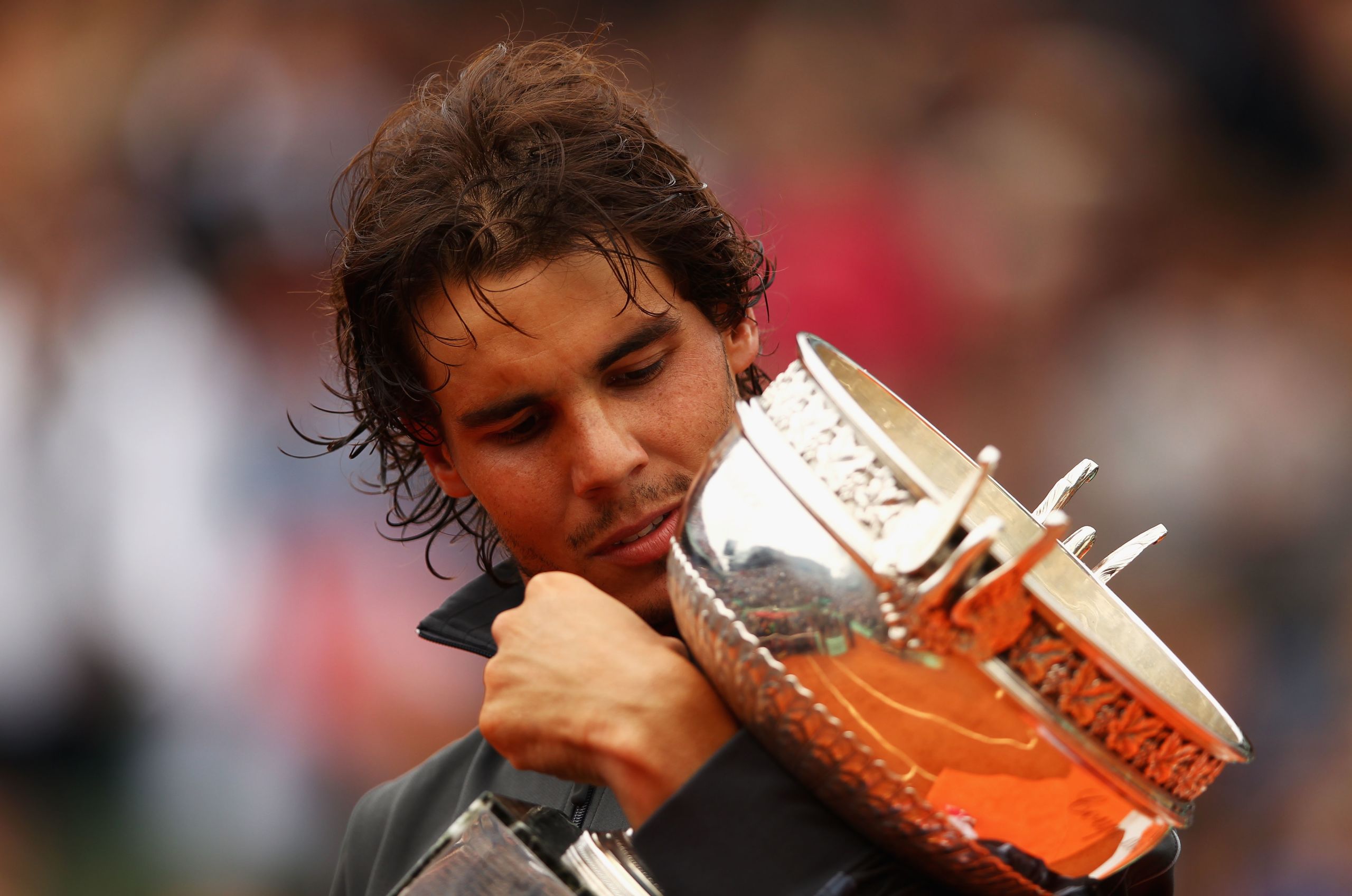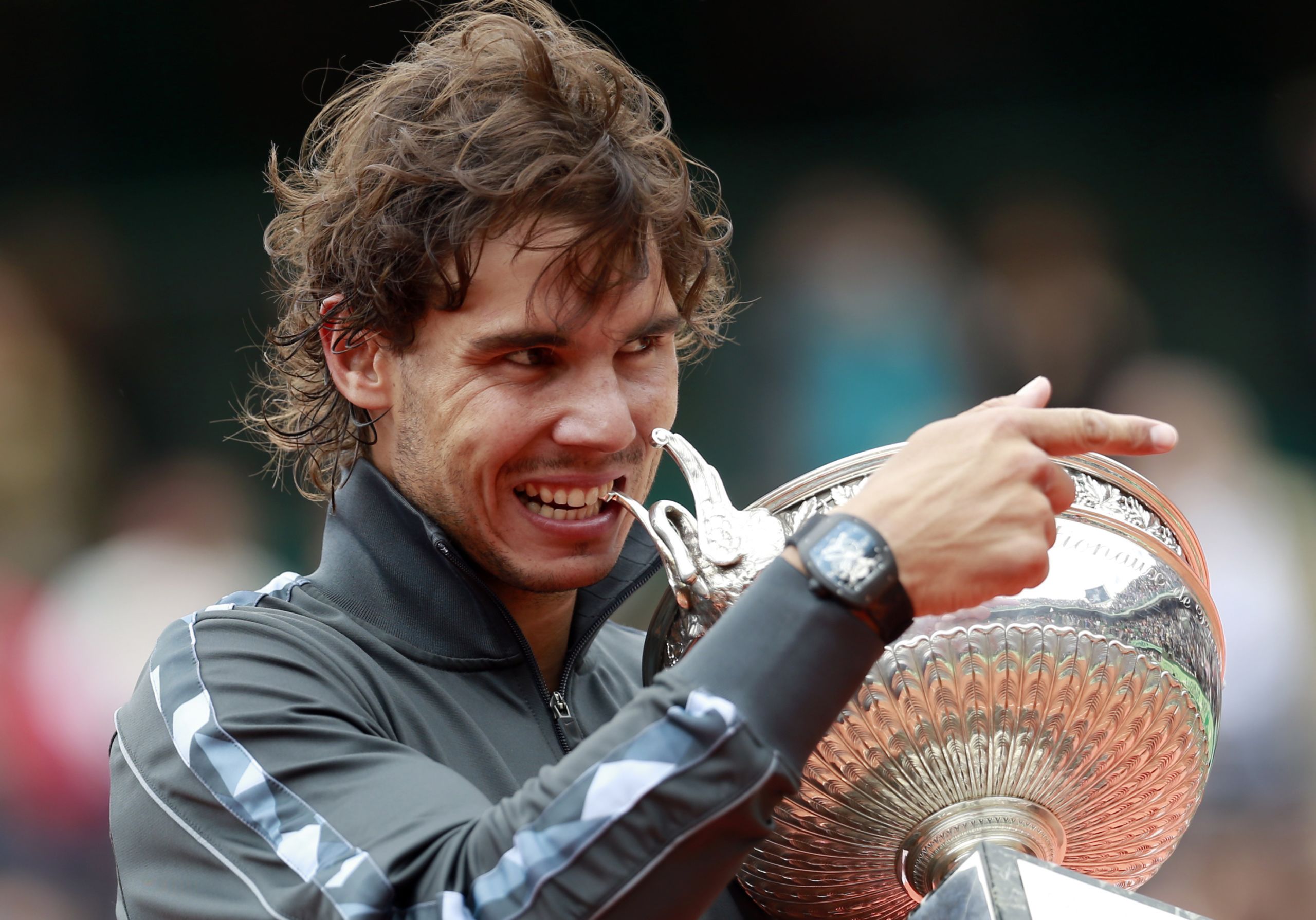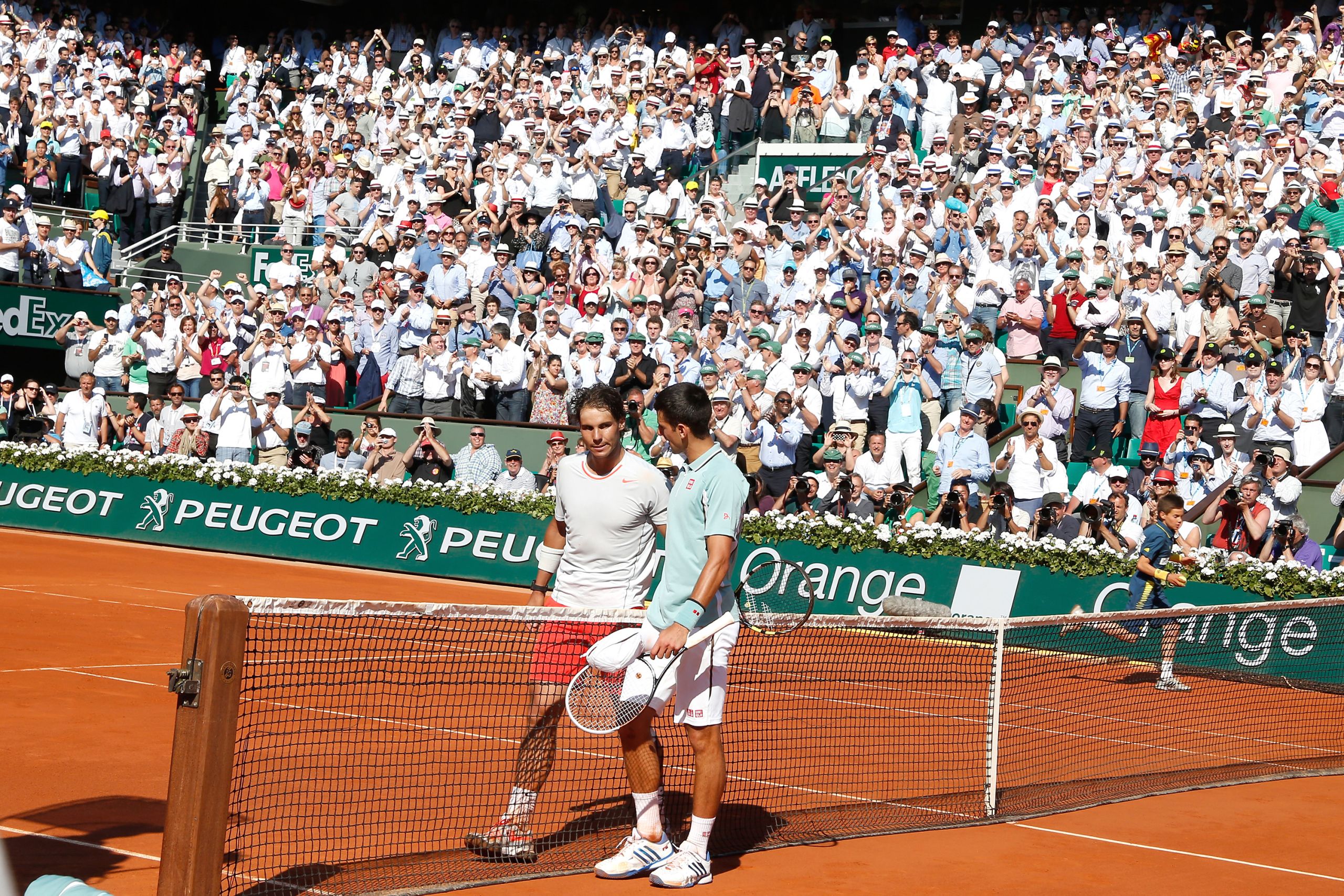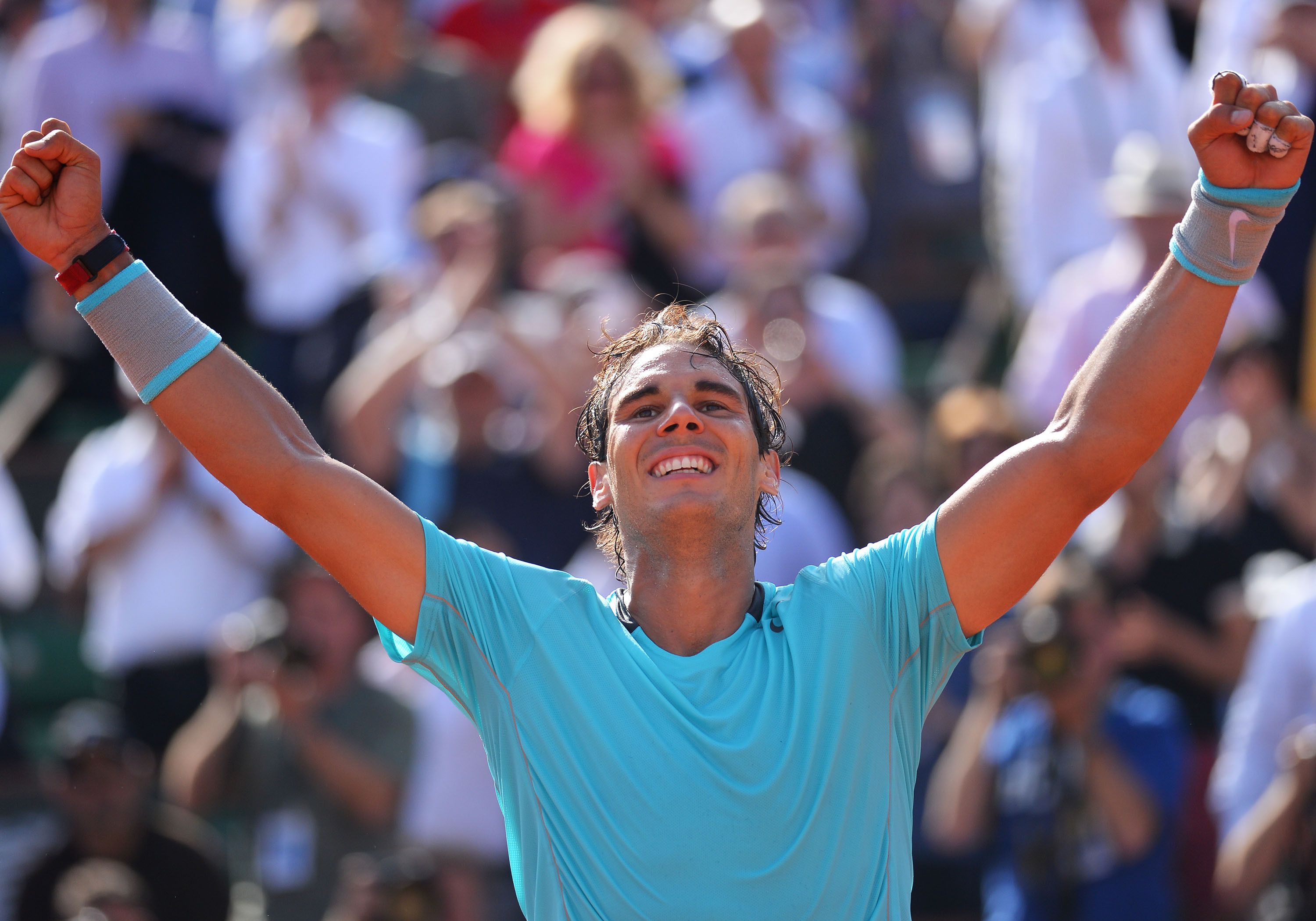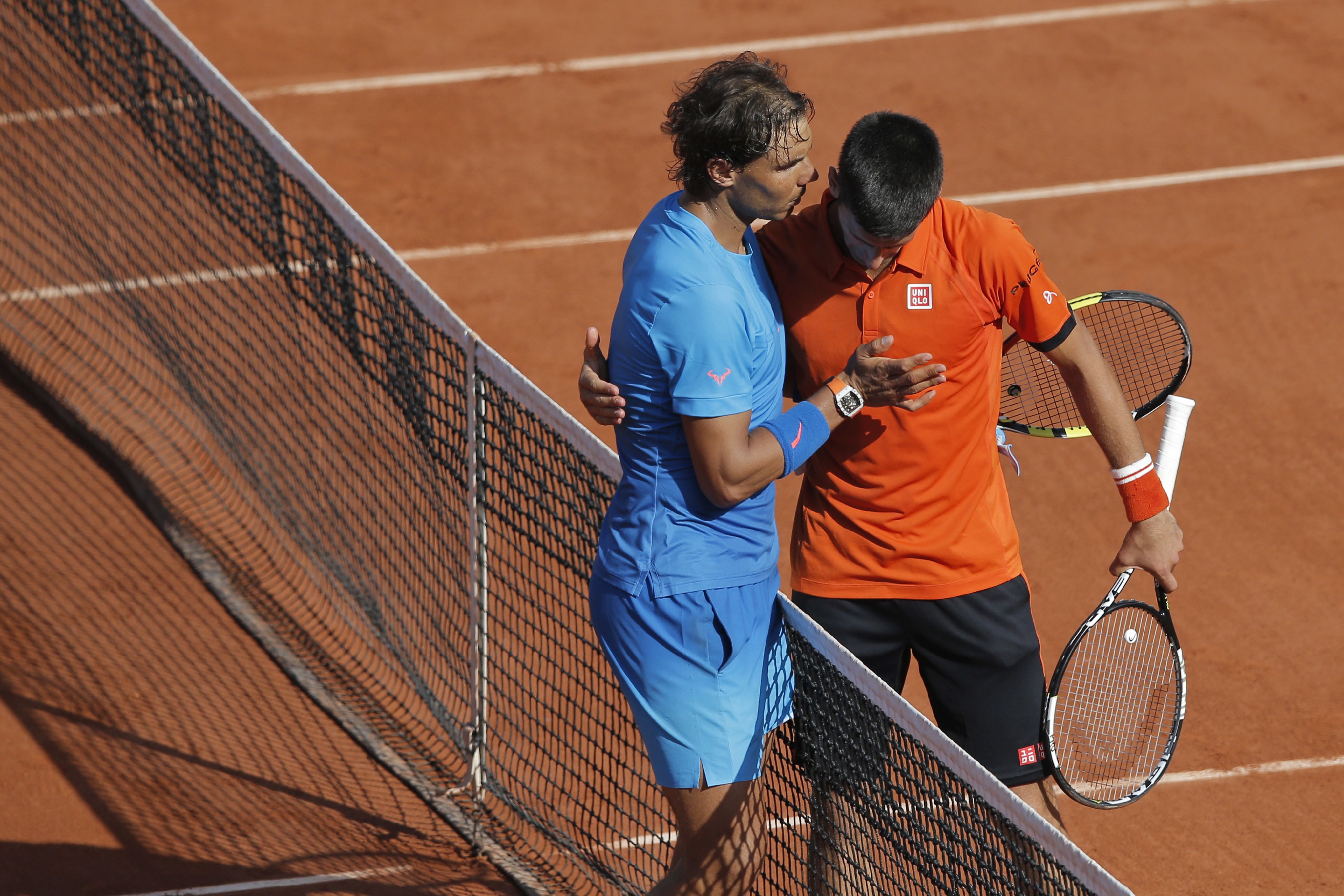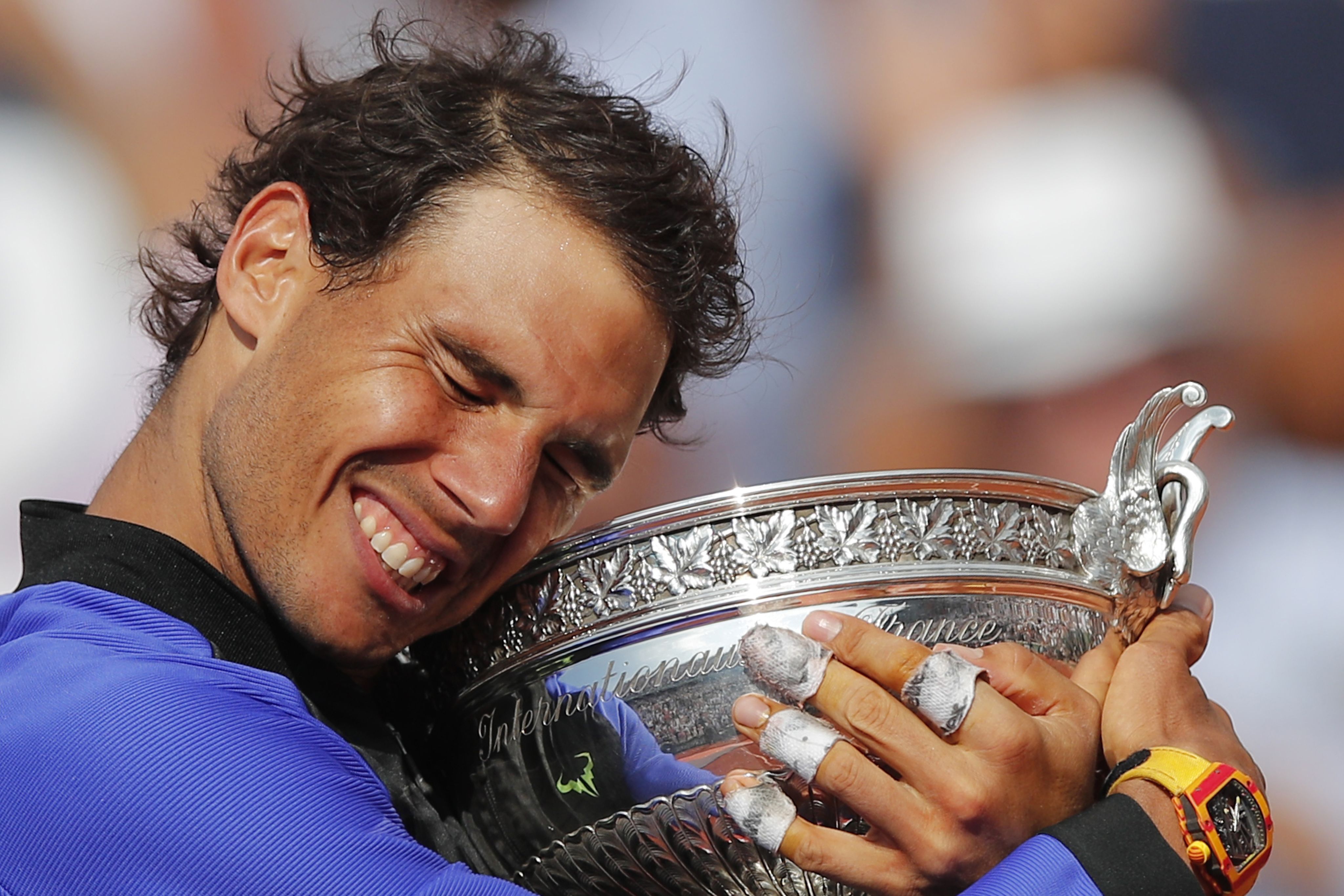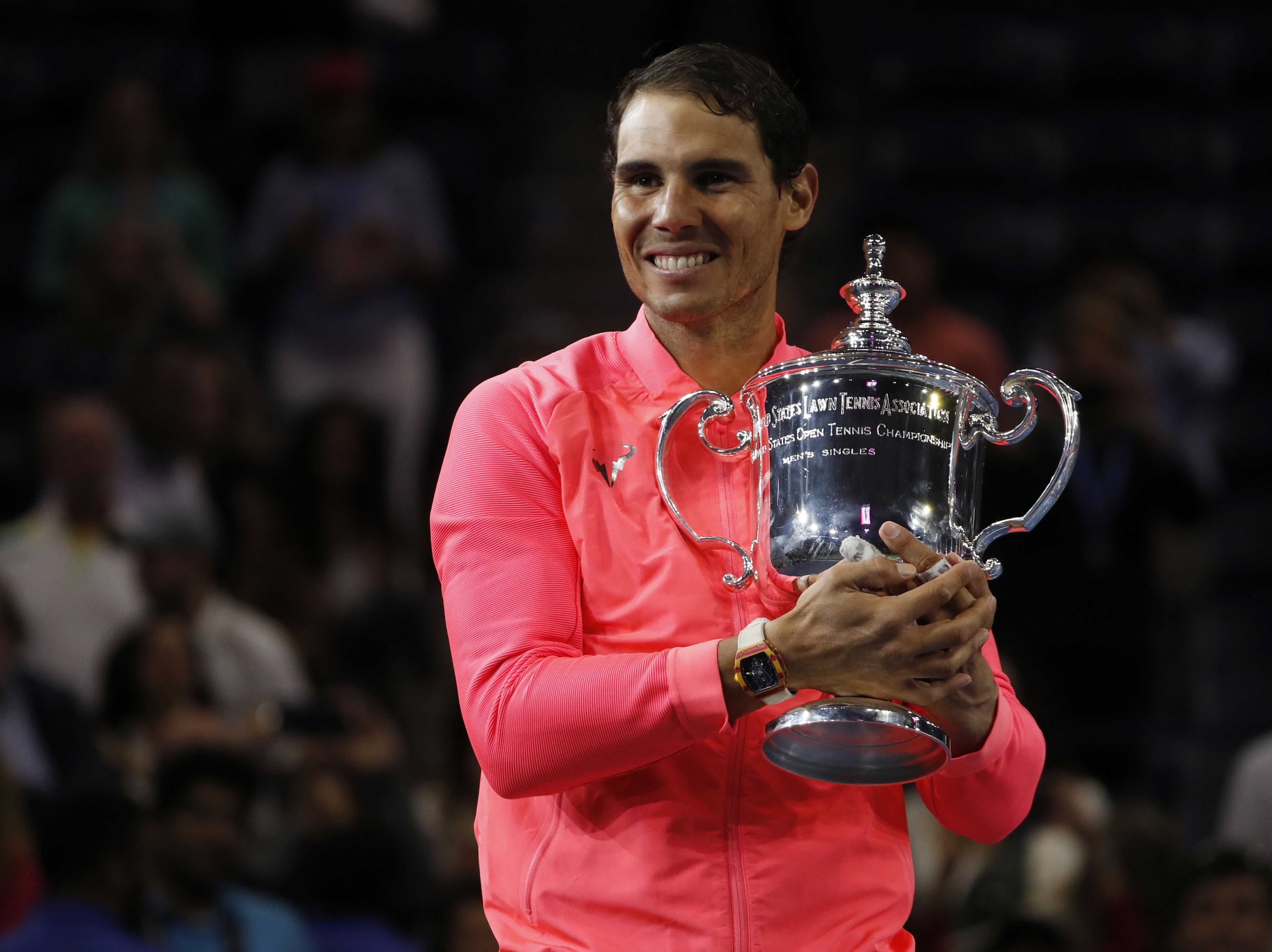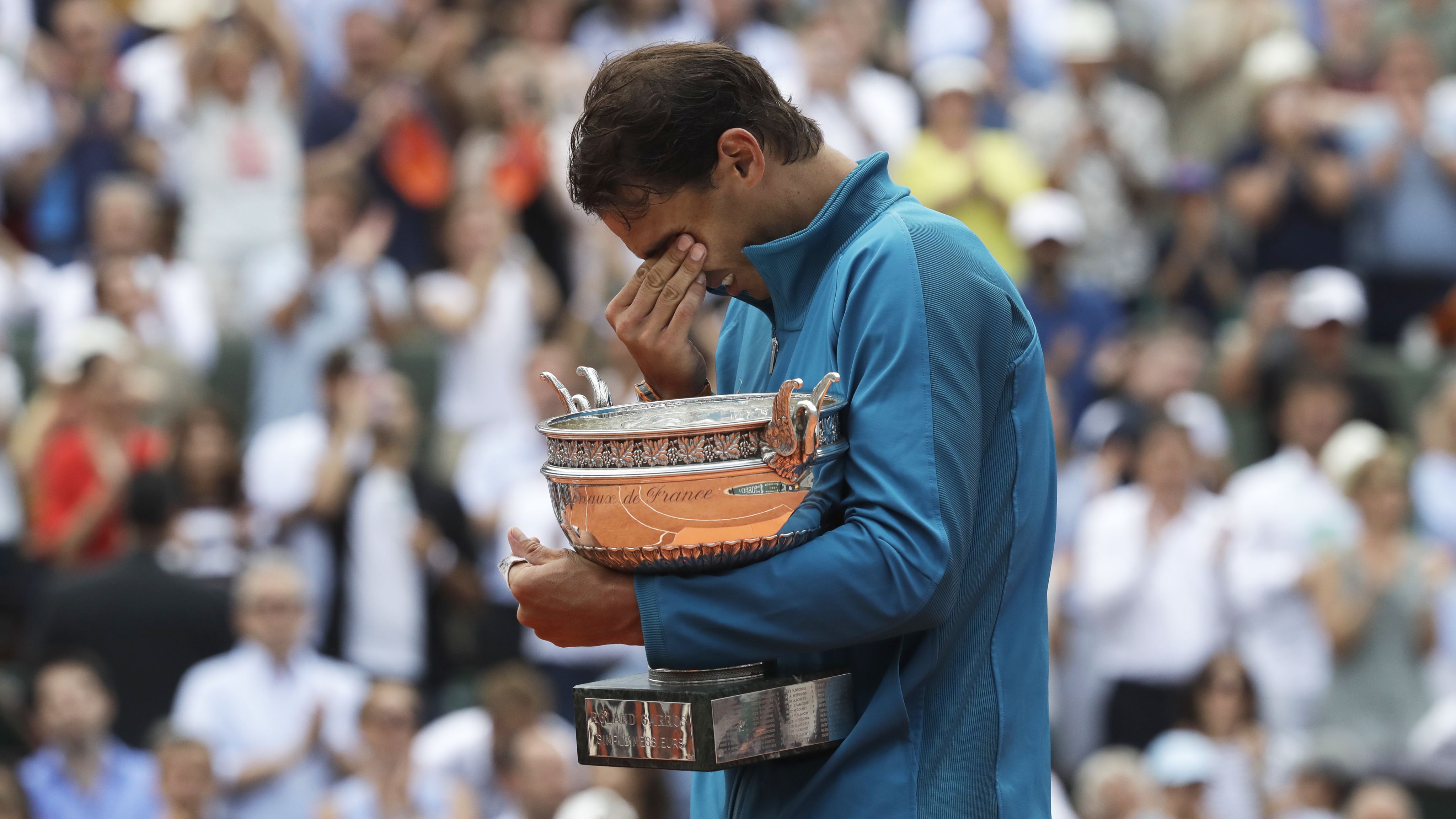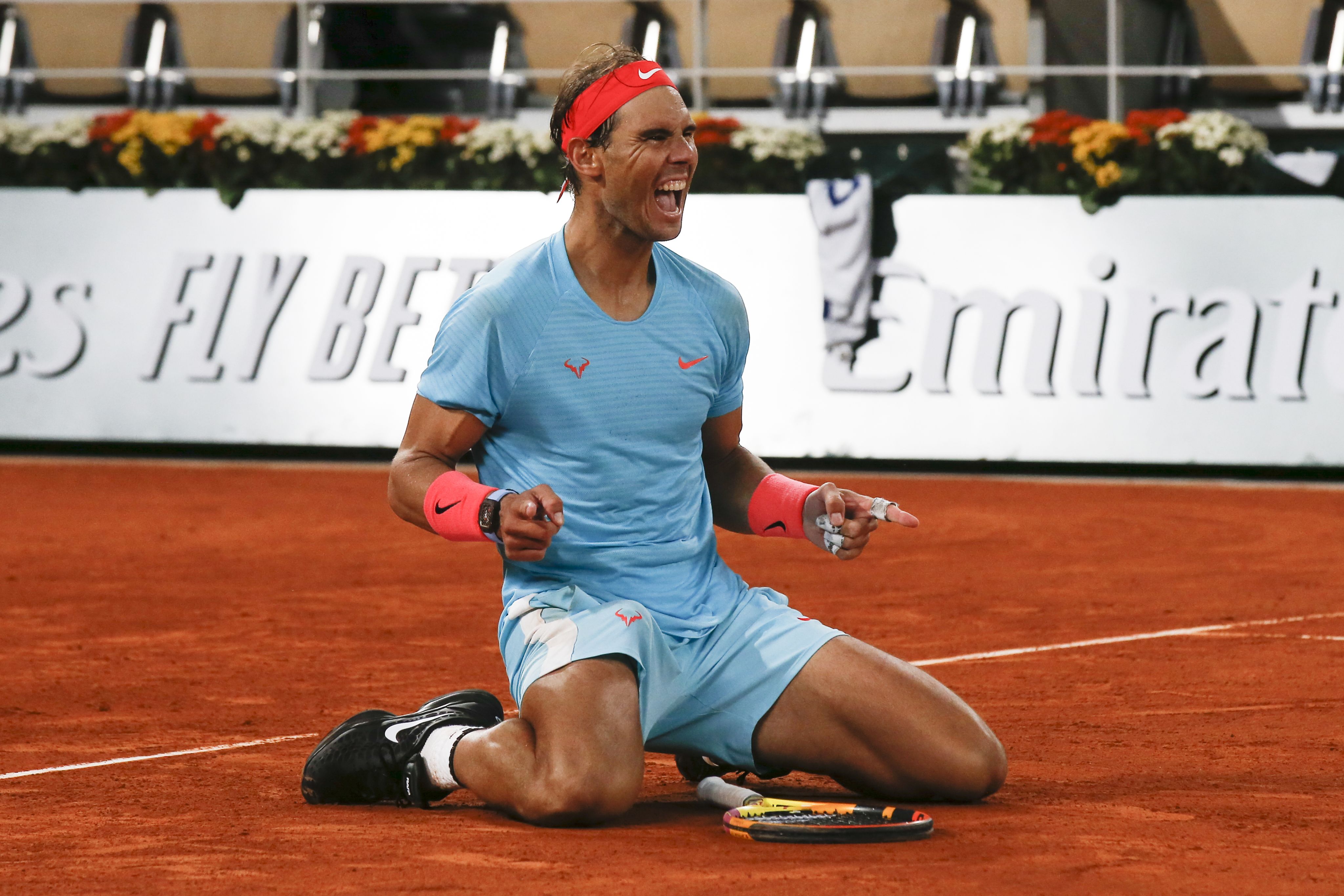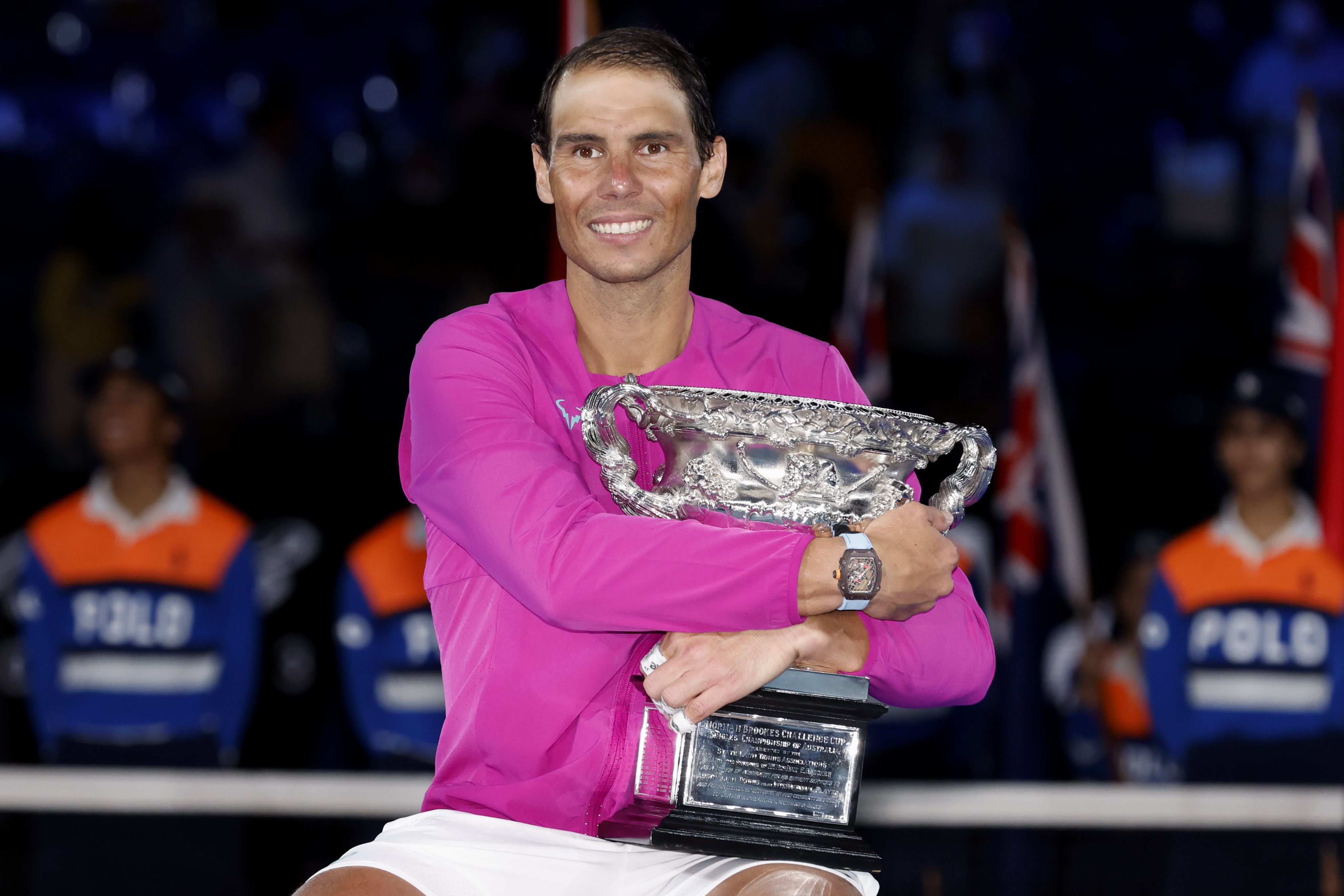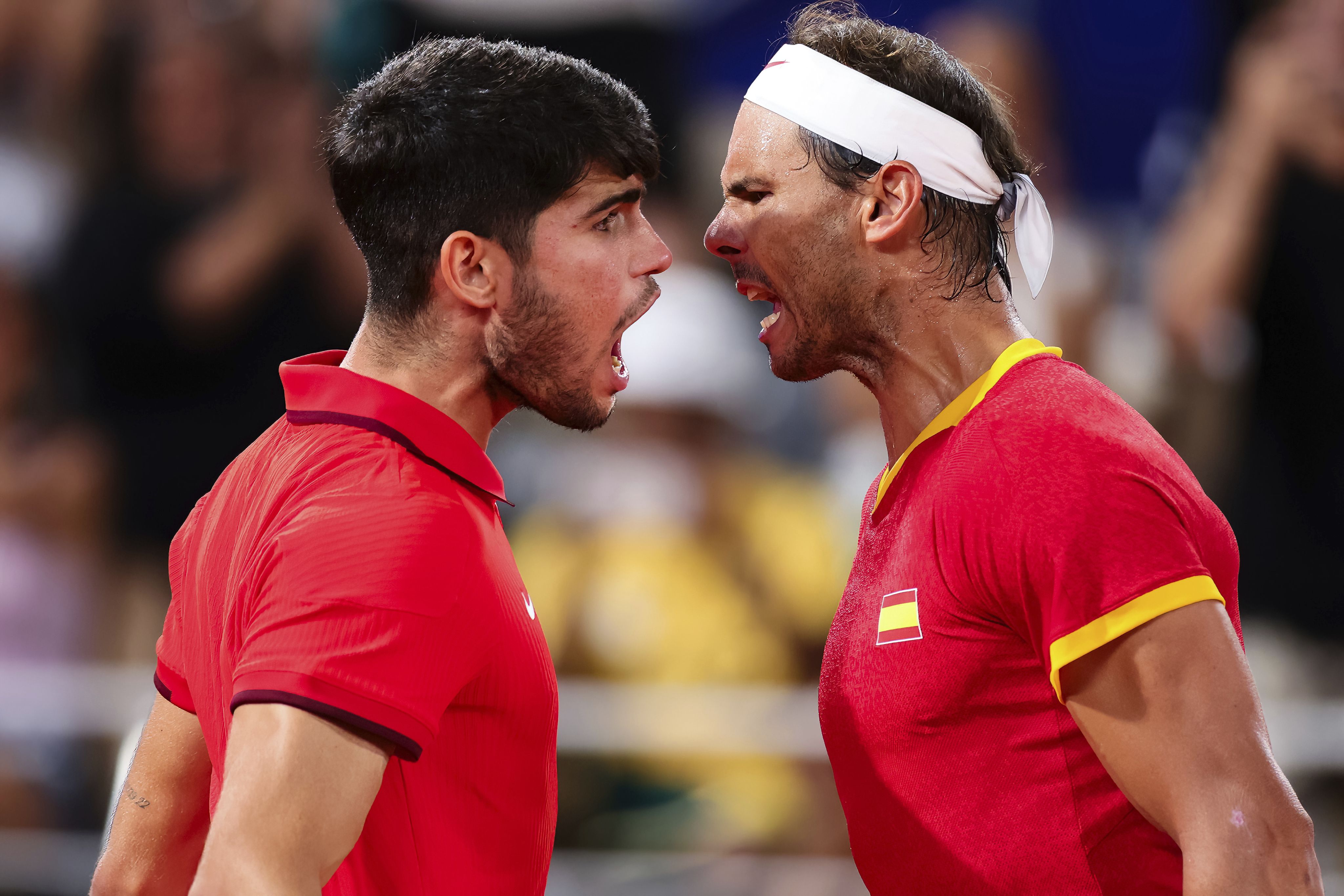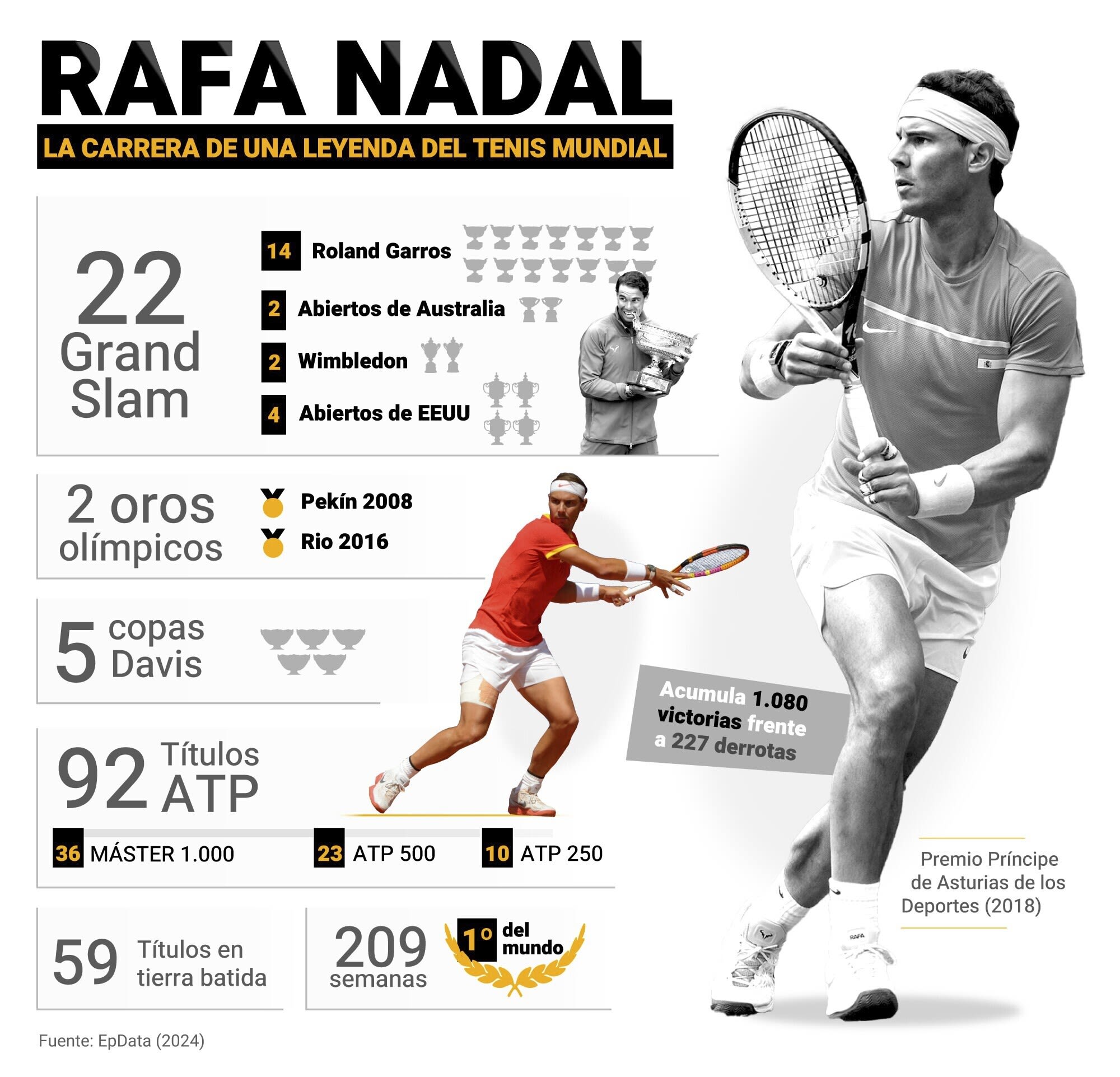Adios to The King of Clay
Clay: Microscopic mineral grains formed by chemical weathering of rocks - the main component of all squishy mud! Rafael Nadal will be remembered as the irresistible force when it comes to the red stuff.
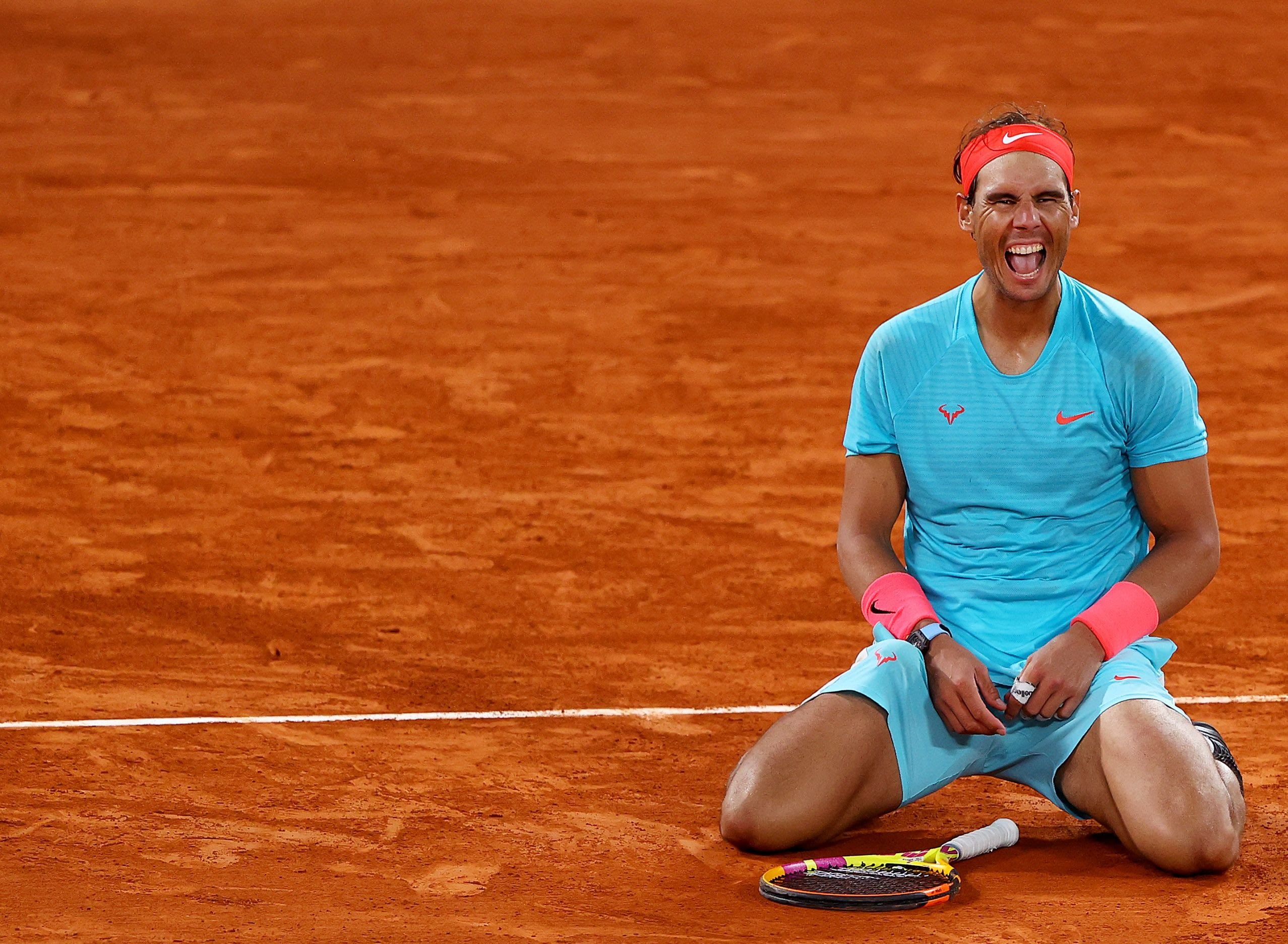
Rafael Nadal has won 14 French Open titles and 22 Grand Slams overall, but now it's adios to one of the greats of the game.
His dominance of the clay transcended tennis itself and is arguably the most dominant any athlete has ever been at any given arena in any sport.
But never far from physical issues in his glittering career, Nadal announced on October 10 that his final match will be for Spain at the Davis Cup Finals in Malaga in November.
The Spaniard played 116 matches at the French Open on Roland Garros' clay and won 112 of them. His win percentage (96.6 per cent) is the best of any player in a single Grand Slam event.
There is an argument that the numbers are skewed by Nadal's dominance on the dirt, but four US Opens, two Wimbledon crowns and two Australian Open titles are not to be sniffed at.
Who is the greatest of them all is a debate that will rage for years to come but Nadal's bulging haul of trophies means even the most ardent Roger Federer or Novak Djokovic fans cannot dispute the Spaniard's supremacy on clay.
Nadal only lost four times at the French Open. Robin Soderling paid for his 2009 victory by losing to Nadal twice over the next couple of years, Djokovic prevailed in 2015 and 2021, while he bid an emotional farewell after losing in the first round to Alexander Zverev this year.
Nadal's winning record at the French Open is understandably the best by a male at any of the four Grand Slams.
While Federer and Djokovic have their own enviable records at Wimbledon and the Australian Open respectively, the manner in which Nadal has racked up 14 titles at Roland Garros is just as scarcely believable as his number of titles.
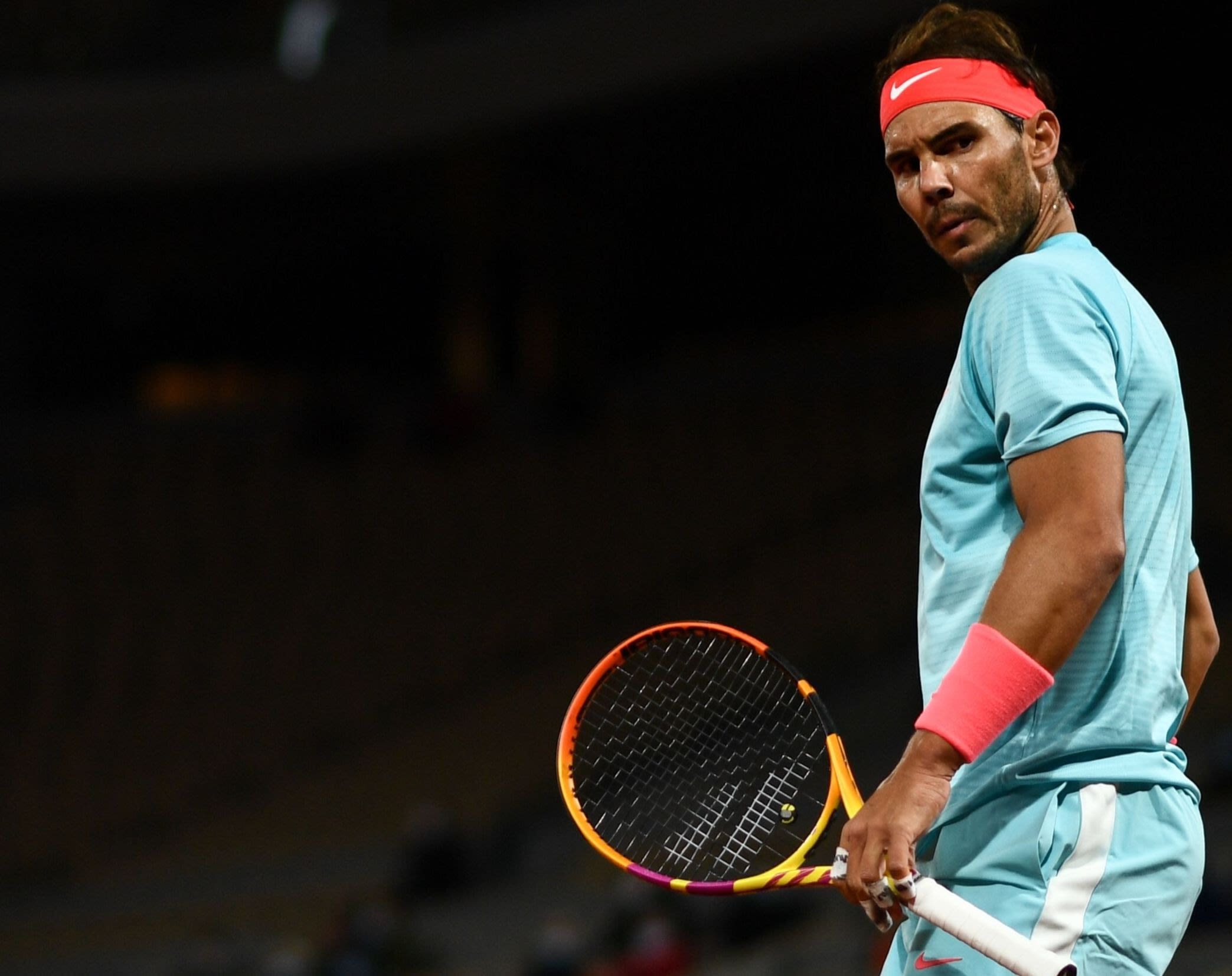
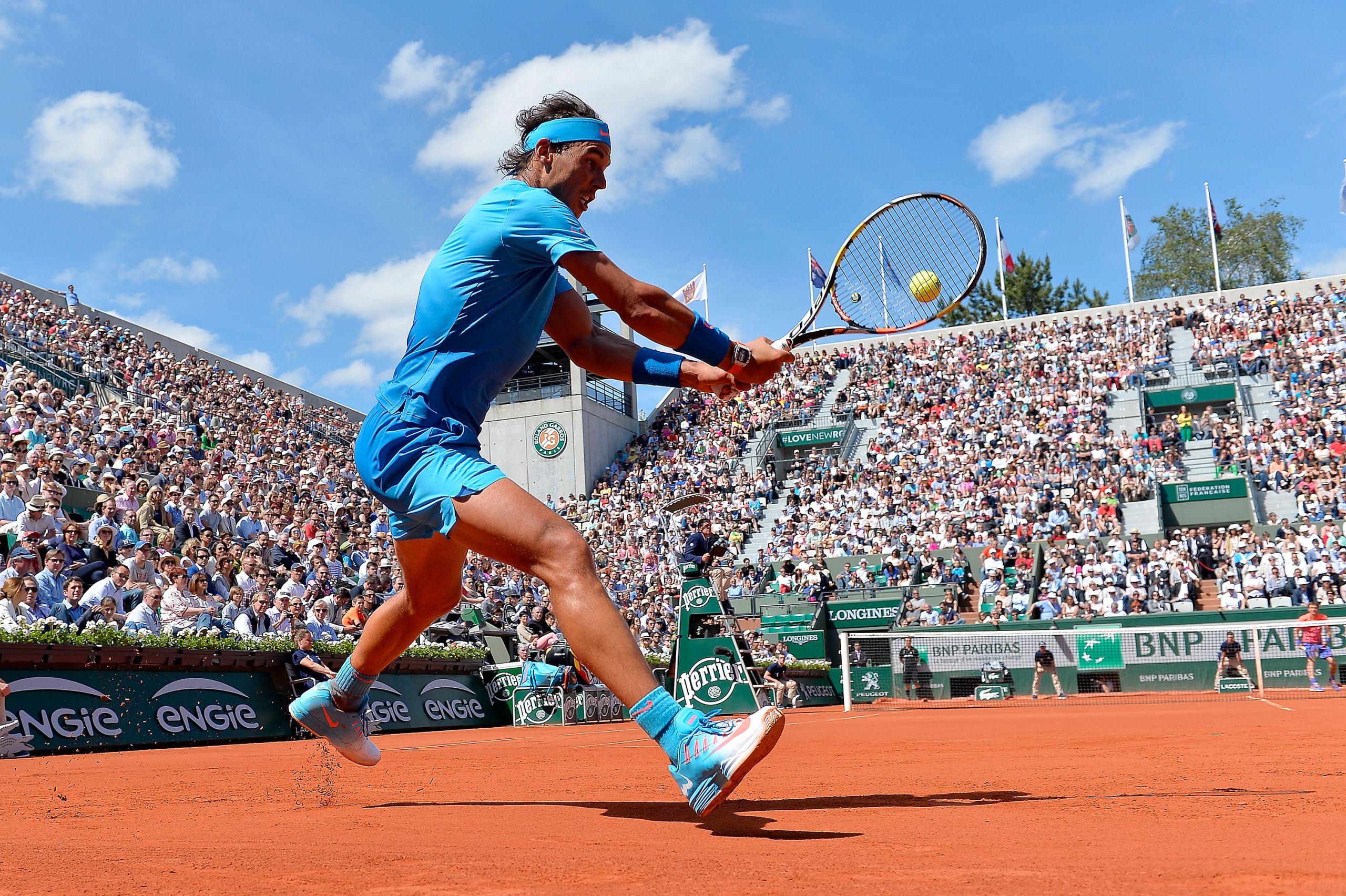
Rafa's uncle, Toni Nadal, a tennis coach, introduced him to the game when he was three and by the age of eight he had won the under-12 regional tennis championship. By 12 a young Rafa opted for a tennis career rather than football. He remained in his hometown of Mallorca before turning professional at 15.
In 2003, at the age of 16, Nadal became the youngest man to reach the third round of Wimbledon since Boris Becker in 1984.
A year later and Nadal beat world No 1 Federer in Miami but missed the French Open due to a stress fracture in his left ankle.
In 2005, the Spaniard won tournaments in Barcelona, Monte Carlo and Rome ahead of the French Open.
In Paris, Nadal upset Federer on his 19th birthday to reach his first major final. He then rallied from a set down to defeat unheralded left-hander Mariano Puerta to become the first player to win the Roland Garros title in his main draw debut since Mats Wilander in 1982.
Nadal became the first teenager to win a major singles title since Pete Sampras at the US Open in 1990.
Cue the familiar celebrations with many more future opponents set to be seduced by the beefcake Spaniard's biceps.
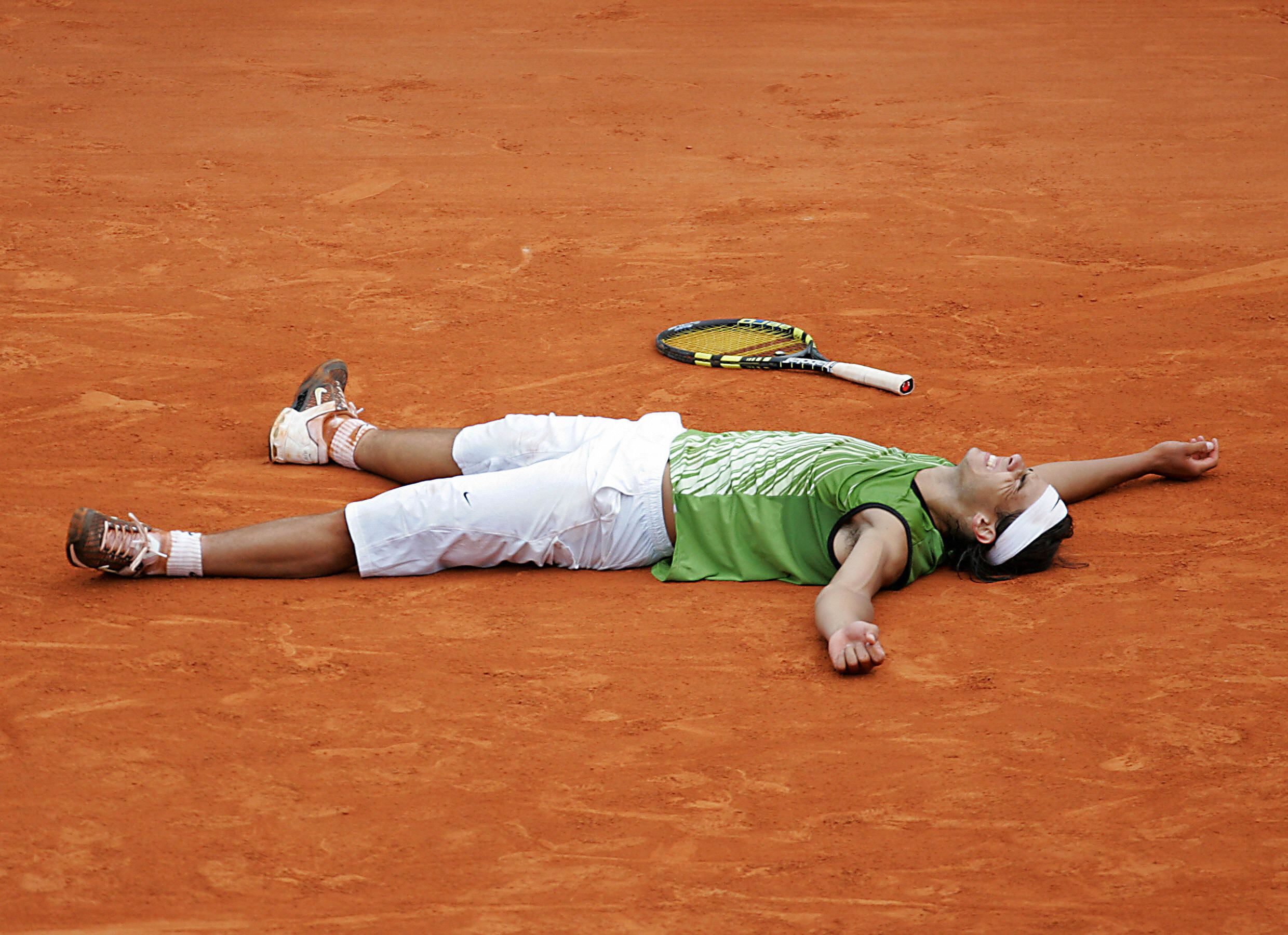
Nadal broke Argentine Guillermo Vilas's 29-year record of 53 consecutive clay-court match victories by winning his first-round match at the 2006 French Open.
He went on to reach his second consecutive final, where he became the first player to defeat Federer in a Grand Slam final and the youngest back-to-back Roland Garros winner since Bjorn Borg in 1974-75.
He then became the first man since Borg in 1980 to win three successive titles at Roland Garros at 21.
He also shattered Federer's hopes of becoming only the third man in history to hold all four majors at the same time.
Another year and Nadal condemned Federer to his worst ever loss in a Grand Slam event with a 6-1 6-3 6-0 victory in one hour 48 minutes before apologising at the end of the match.
He matched Borg's feat of four straight titles at Roland Garros and also won it without losing a set, becoming the third man to do so in the Open Era after Ilie Nastase and Borg.
Wimbledon, 2008, and an unforgettable final. Nadal defeated Federer in arguably the greatest match ever to be played.
There were rain delays, plot twists and a surprising ending as the Spaniard won 9-7 in the fifth set and in near-darkness at 9:17 PM.
Nadal, speaking in Strokes of Genius documentary looking at the Federer-Nadal rivalry through the lens, said: "I could lose the final. But I wasn't going to fail. I'd be ready to compete till the end. Federer could win, but I wasn't going to lose."
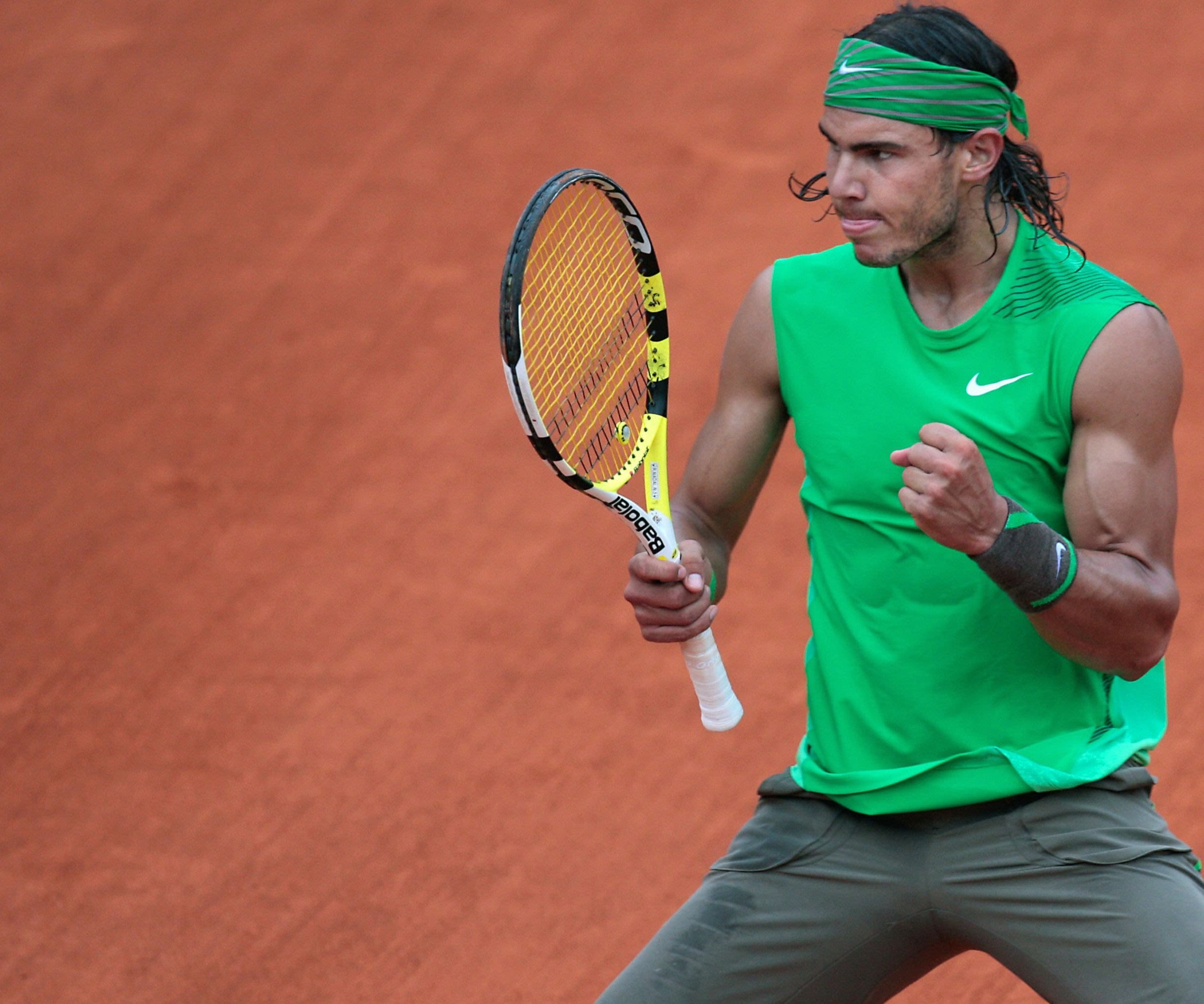
"Endure – put up with whatever comes your way, learn to overcome weakness and pain, push yourself to breaking point but never cave in. If you don’t learn that lesson, you’ll never succeed as an elite athlete." Rafa: My Story
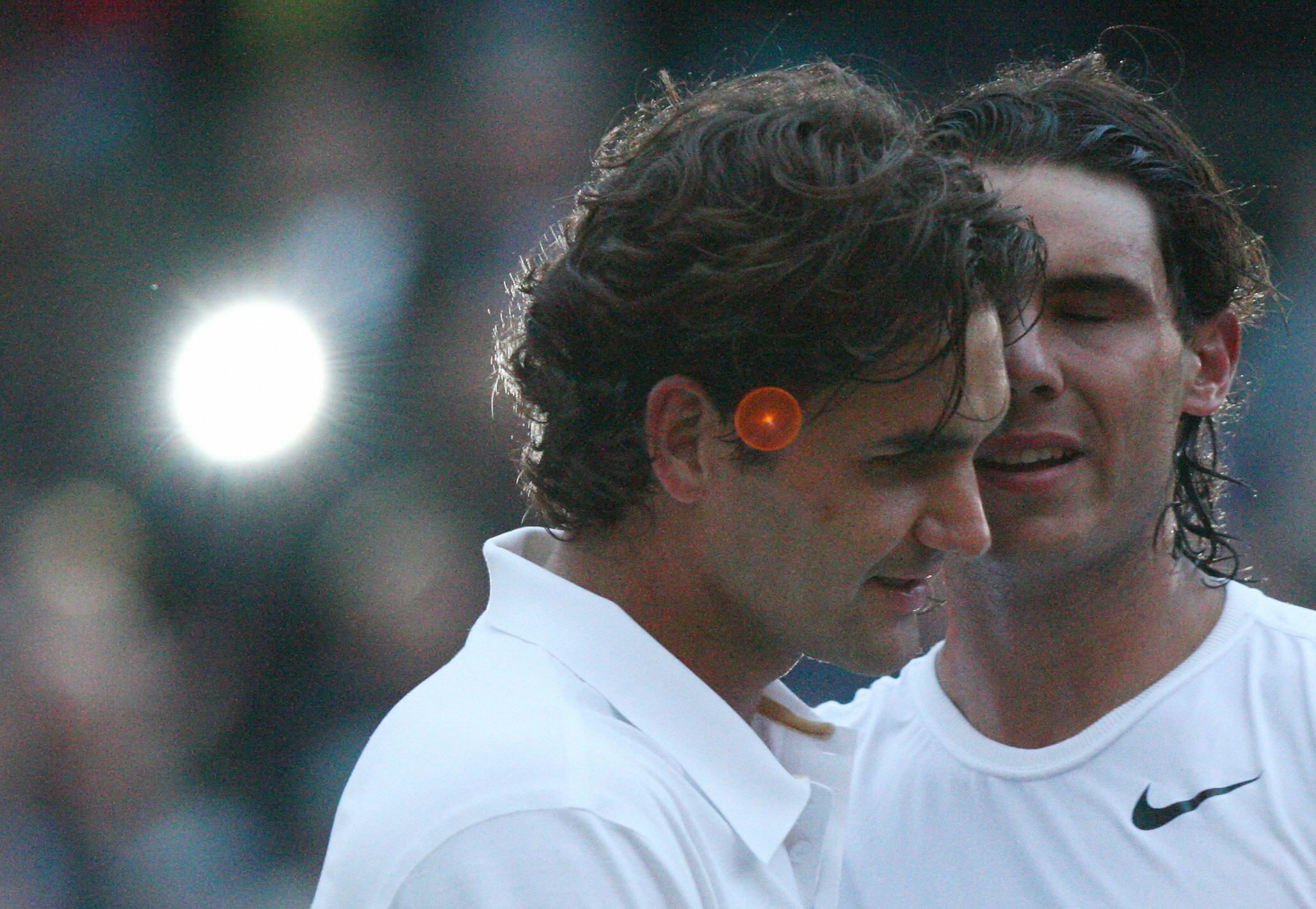
A glorious year ended with a gold medal at the Beijing Olympics after victory against Fernando Gonzalez in three sets.
He became the first player to hold three major titles on three different surfaces at the same time when he won the Australian Open with a five-set success against Federer.
“I've felt better. Maybe I'll try later. God, it's killing me,” said Federer, in an iconic Melbourne moment.
The glory turned to pain when a dejected Nadal saw his 31-match winning streak come to an end as he suffered a stunning fourth-round loss against Robin Soderling at the French Open in 2009. It was his first defeat on the Parisian clay.
"In that match I tried to take more chances, go for the shots a little bit more in the rallies and you have to serve well. He is such a good returner so you know that you have to have a lot of first serves in and be able to put pressure on him early in the rallies," Soderling told Sky Sports.
"It's difficult to hit winner after winner against Rafa because he moves so well and his defensive game is superb. My tactic was to try and come into the net to finish the point. I couldn't continue to hit winners from the baseline for four or five sets. I came in on the right points and my volleying worked well."
A year later and Nadal exacted his revenge over the Swede, but this time in the final for his fifth Roland Garros title in six years.
He also regained the world No 1 ranking for the first time since July 2009.
He followed that up with his second title at Wimbledon with a straight-sets victory over Czech Tomas Berdych.
A remarkable year ended when the world No 1 completed a career Grand Slam by beating Djokovic at Flushing Meadows.
Nadal won his sixth French Open title by defeating Federer at the age of 25 and equalled the tally of Borg. It was the 10th Grand Slam title of his career.
In 2012, he surpassed Borg's record to become the most successful player in French Open history with his seventh crown in a rare Monday final that had several delays due to rain.
He also ended Djokovic's bid to be the first man since Rod Laver in 1969 to hold all four majors.
The Coupe des Mousquetaires trophy was back in Nadal's arms in 2013 after his straight-sets victory over David Ferrer as he improved his career record to 59-1.
The hard yards were achieved in the semi-finals when he defeated Djokovic 6-4 3-6 6-1 6-7 (3-7) 9-7 in a four-hour, 37-minute epic.
The Serb was on the receiving end of another Rafa defeat in September, when Nadal was crowned US Open champion for the second time in his career following a four-set win.
"Very, very emotional," said Nadal. "All my team knows how much this means to me. Probably nobody brings my game to its limits like Novak Djokovic."
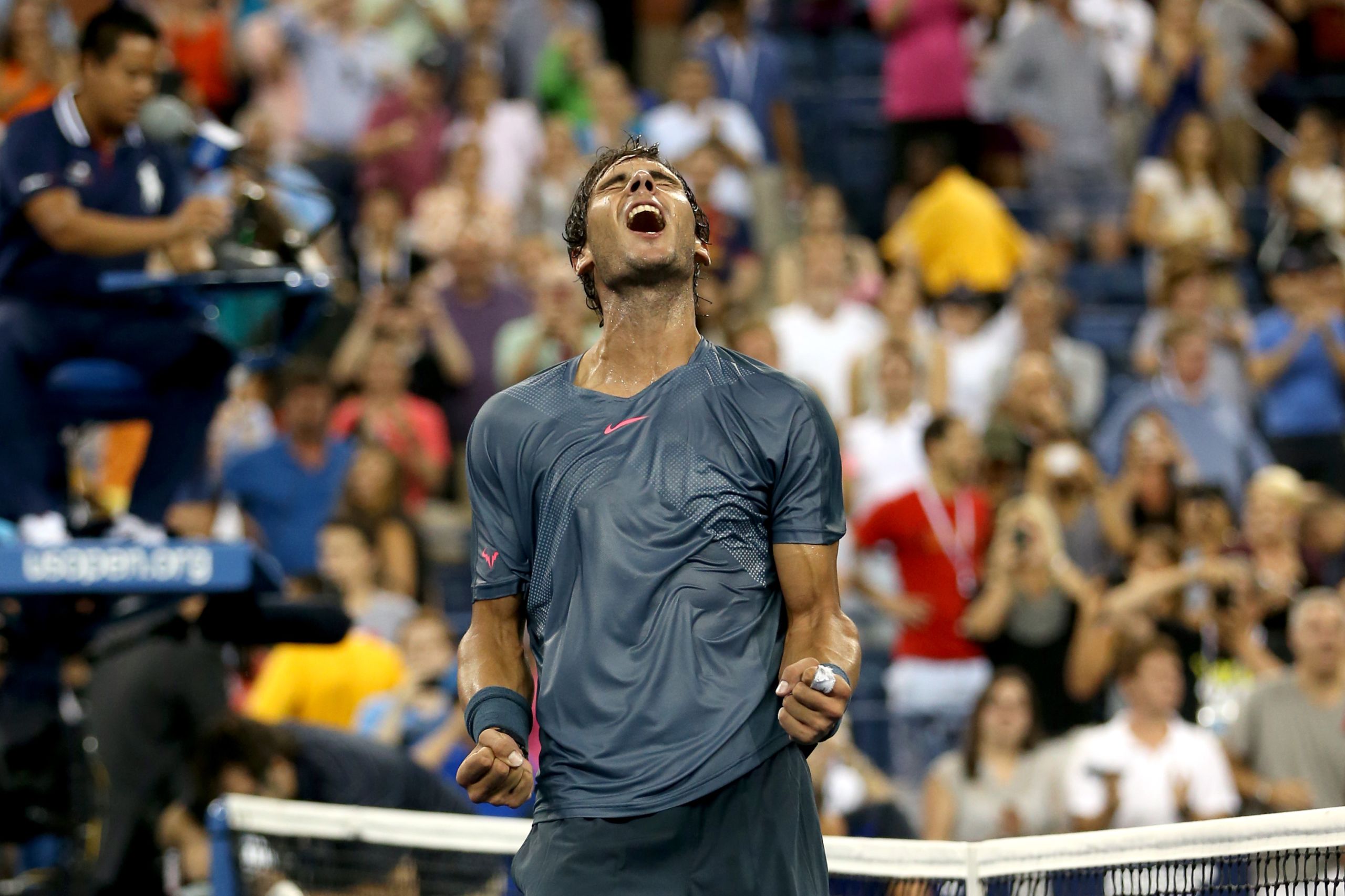
The King of Clay entered Roland Garros in 2014 with only one European title on the dirt for the first time in 10 years but he won French Open number nine and record a fifth successive victory by defeating rival Djokovic in four sets. He was presented with the Coupe de Mousquetaires by another legend of the sport - Borg.
The win helped him extend his incredible run at Roland Garros to 66 wins and just one defeat over 10 years.
The 2015 season proved to be his annus horribilis with a quarter-final defeat in Melbourne. He then failed to win a single European clay court title for the first time since 2004 heading into the French Open.
At Roland Garros he suffered only his second defeat with Djokovic ending his hopes in the last eight. Early exits at Wimbledon and the US Open ended Nadal's record 10-year streak of winning at least one major.
The following year proved even worse for Nadal with a shock defeat to compatriot Fernando Verdasco in five gruelling sets at the Australian Open before being forced to withdraw a day before his third round match at Roland Garros due to a wrist injury. He missed Wimbledon and at Flushing Meadows, Frenchman Lucas Pouille ended his hopes in the fourth round.
His three-year Grand Slam drought came to an end in the 2017 French Open final with a brutal 6-2 6-3 6-1 mauling of Stan Wawrinka.
Nadal's 'La Decima' was his 10th French Open, and he managed it without dropping a set throughout the tournament. It was his most one-sided final win since allowing Federer just four games in the 2008 final.
At 31, he became the oldest champion in Paris since 34-year-old Andres Gimeno in 1972.
A ruthless Nadal continued his comeback when he proved far too good for Kevin Anderson as he claimed a 16th Grand Slam title at the US Open. The world No 1 lived up to his billing as the heavy favourite with a 6-3 6-3 6-4 victory over the surprise finalist.
Imperious Nadal took his Roland Garros win-loss record to a jaw-dropping 86-2 as he won a record-extending 11th French Open title with victory over young pretender Dominic Thiem.
He joined Australia's Margaret Court as the only player to win 11 titles at the same major.
In a repeat final the following year, Nadal was pushed perhaps as hard as he has ever been in a final in the first two sets. But Thiem, who played sensational tennis for nearly two hours, could not sustain the pace and Nadal charged away to victory, winning 6-3 5-7 6-1 6-1.
Nadal stood on his own as the most successful singles player, male or female, at a single Grand Slam having moved clear of Court's record at the Australian Open.
At Flushing Meadows he overcame Daniil Medvedev in five breath-taking sets to claim his 19th major, and move to within one Slam of Federer's all-time record.
The Spanish second seed led by two sets and a break, but he needed to halt a thrilling comeback from the Russian rebel to win an epic showdown 7-5 6-3 5-7 4-6 6-4.
The colder conditions and heavier balls in the rearranged French Open in 2020 led to Nadal casting doubt on his ability to retain his title, but he did not drop a set all tournament - the fourth time this has happened in his career, having done likewise in 2008, 2010 and 2017.
He produced a clinical display to put away Djokovic and equal Federer's record tally of 20 Grand Slam titles.
The most unexpected of all Nadal's successes, and the one that took him to the top of the tree came at the 2022 Australian Open.
The Spaniard had not won in Melbourne since 2009 and had feared a foot injury would force him into retirement but he recovered from two sets down to defeat Medvedev after more than five hours.
Nadal suffered a fractured rib in Indian Wells to severely hamper his preparation for the clay-court season, before his chronic foot problem resurfaced in Rome to spark fears he would not be fit for Roland Garros.
But stunning, battling wins over Felix Auger-Aliassime and Djokovic highlighted another French Open success, with Casper Ruud unable to upset the odds in the final.
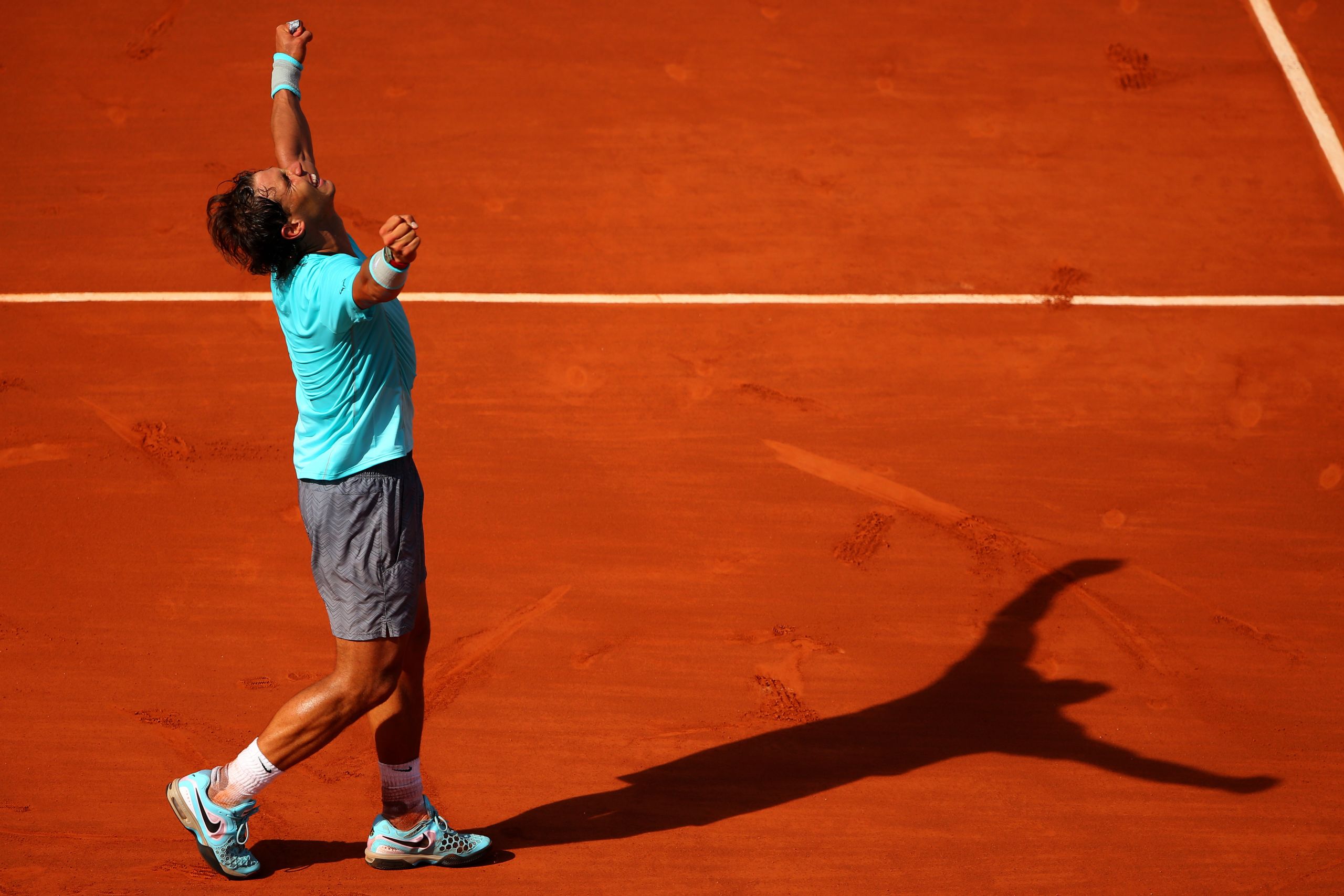
He had hip surgery during the 2023 French Open, the first time he missed it since winning his debut there as a teenager.
Unseeded after his long injury absence and still way below the peak of his powers, Nadal was unfortunate to run into the in-form world No 4 Zverev in the opening round at Roland Garros earlier this year.
The match ended in anticlimactic fashion, with Nadal unable to play his customary way after 18 months of hip and abdominal injuries.
But Nadal gave the 27-year-old, 10 years his junior, a serious match before going down 6-3 7-6 (7-5) 6-3 in front of an adoring and emotional Philippe Chatrier crowd which included his wife Xisca, baby son Rafael Jr and uncles Toni - his former coach - and Miguel Angel, the ex-Spain footballer.
"If it's the last time that I played here," Nadal said, "I am at peace with myself."
"My body has been a jungle for two years. You don't know what to expect. I wake up one day and I (felt like I had) a snake biting me. Another day, a tiger."
Nadal gathered his bags and headed to the locker room, but not before stopping to look around. He applauded right back at those cheering him and saluting him with one final chant - "Ra-fa! Ra-fa!"
Nadal returned to Court Philippe-Chatrier for the Paris Olympics where he lost to old rival Djokovic in the second round of the singles tournament and reached the quarter-finals of the men's doubles with Carlos Alcaraz.
But the 38-year-old has now decided to hang up his racket with one final battle against Novak Djokovic when they meet in the Six Kings Slam exhibition event in Saudi Arabia before the Davis Cup Finals in Malaga in November, in what will be a fitting and emotional end to an illustrious career.
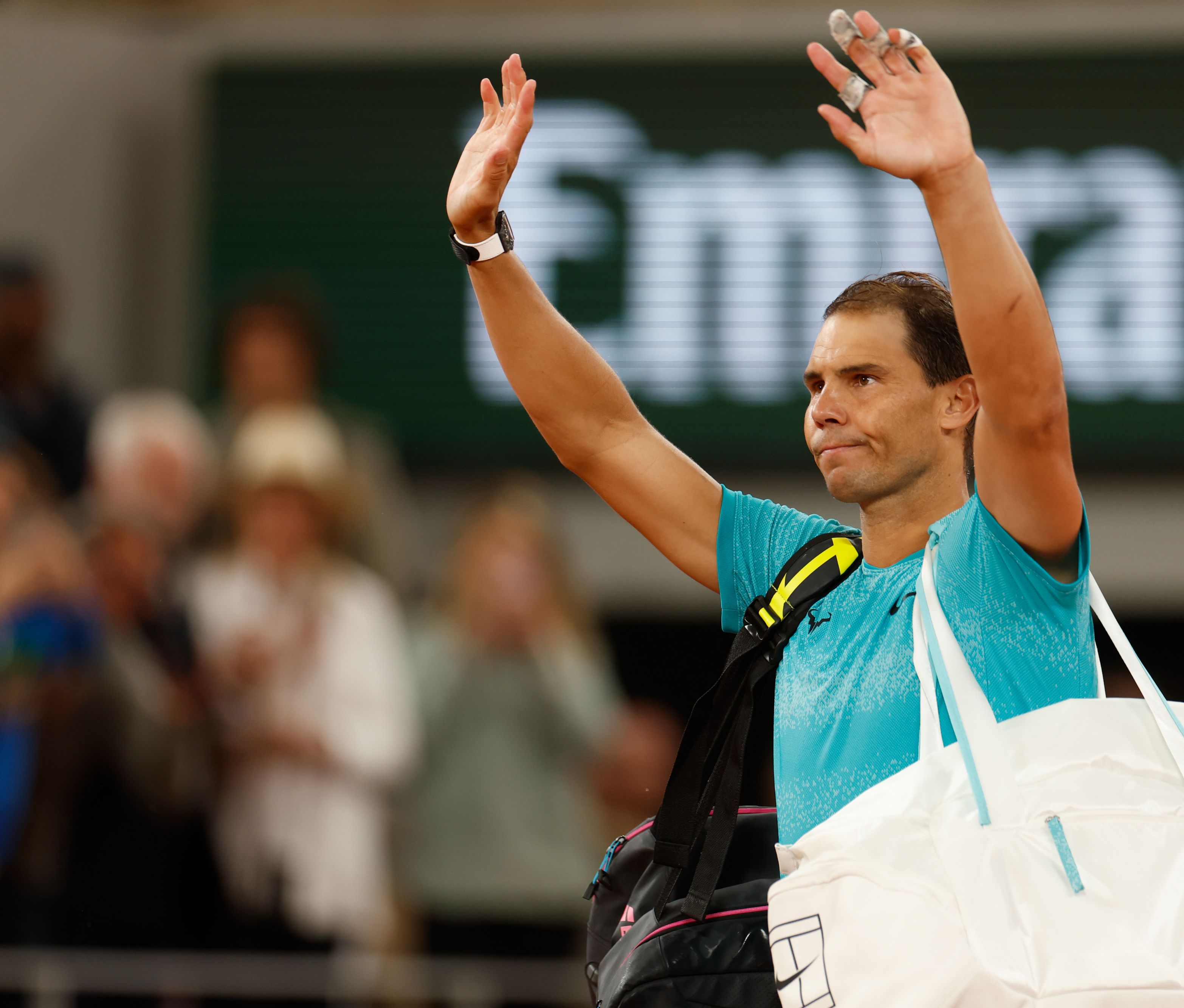
Felipe VI, King of Spain
"He is, without a doubt, the best athlete in the history of Spain. Spain has to pay him a tribute for many, many years. Nadal is the king of Roland Garros and of world tennis. He has achieved a record that is very difficult to beat."
